
Bederatzigarren astea: Red Flags… and Green Ones
¡Hola a todos y todas!
So, I’ve been thinking about this one for a while… and by “a while” I mean 48 hours, which, in the grand scheme of life, isn’t much time—but it is a lot when you’re sitting on planes, taxis, buses, and in airports for hours on end. And after all that thinking, I’ve come to the conclusion that I don’t really know how to say what I want to say.
Which is an odd experience, considering I have two languages to pick from—statistically, that’s double the words. Yet no matter how long I sit with it, or how many random notes I type into my phone (there are 37 bullet points, by the way—some of which I don’t even understand, like “Can you move to cat?”), the events of July 12, 2024, are simply out of my vocabulary for many reasons.
But alas, here I am, on this hot Monday afternoon in my new room in Sevilla, finally putting hand to keyboard to get this blog out ASAP (aka Wednesday—miércoles for the Spanish flavor). I’m going to have to try my best. So here we go…
There are some things you just never forget in life: weddings, traumatic events, a particularly mean Kathleen, the day you get into Princeton, or—in today’s case—July 12, 2024.
It all started when I decided not to post last week’s blog Friday night and woke up at 4 a.m.—a time which, on the spectrum of times I’ve gotten up for things over my 19 years, isn’t that bad. I mean, triathlons sometimes start at 5 a.m. and are two hours away.

The metro and rodalies were closed, and as planned the night before, my 4:20 a.m. activity was hopping into a Cabify (aka Uber) to head to the airport. It was exciting because it was my second time ever using a rideshare and my first time doing it alone.
Now, before you judge, go back to semana tres, el camino de Valencia—the whole thing was planned just to avoid Ubering alone in daylight. So, as you can see, I’ve grown. I’ve learned. I’ve jumped into the deep end. But this story actually has nothing to do with Cabify. In fact, I’d argue the Cabify was the least exciting part of the day—minus the many texts I had to send to my mom.
Constant texts like, “Delia, send me the information about your car.” Like, I don’t know what her plan was if I was kidnapped—hop on a plane to Spain? Anyway, she stayed up well past her “bedtime” (8 p.m., don’t laugh) to watch my little Life360 circle move from la casa to el aeropuerto.
Oh—quick side note because I just realized I didn’t mention it: this was a trip to Bilbao, a city in the north of Spain, bordering the ocean, in Basque Country. I know we talked about my favorite Spanish word last week, and technically city names don’t count, but I’m sorry—Bilbao is just such a fun word to say.
You know those trampoline parks kids love? Every time I say Bilbao, that’s the picture in my head because it’s such a “bouncy” word—more so in Spanish than in English. It also feels like a male dog’s name. So, maybe in the future, if I ever have a dog, I can be like, “¡Ven aquí, Bilbao!”
Persiana, as we discussed in week two, on the other hand, is such a cat name—like for one of those sassy, dramatic cats with way too much fur.
4:40 a.m., I arrive at the airport. Still ridiculously early, as I had no baggage besides a backpack containing an empty water bottle, a wallet, and leftover cookies from Mercadona.
“Why, Delia, did you book such an early flight?”
Well… dumb Delia had gotten so used to the luxuries of train travel—where you show up 20 minutes before departure and just hop on—that she forgot the important detail that you’re supposed to arrive at an airport two hours early.
Now, I don’t know if this is an official rule, but for my flight on Monday the 14th it was required—or you paid a fine. This flight on Saturday, however, had no such rule. So, when booking this one—and unfortunately also the Monday flight to Sevilla—I neglected this detail and ended up with a 7 a.m. flight (and a 6:30 a.m. flight for Monday).
For 4 in the morning, the airport was surprisingly busy. I would hate to see it during the day, because there were already a lot of people. Probably took around 20 minutes to get through security, but by then it was only 5 a.m.—still two hours early.
Enter Netflix España, saving the day once again. Old classics in English, but I’m giving you the Spanish titles because they’re honestly better—La sonrisa de Mona Lisa and Mi lista de deseos. The Mona Lisa one was definitely better, following the story of a progressive art history professor at Wellesley trying to show young women that there’s more to life than motherhood—that you can have both a career and a family.
A modern message for the 1950s. Even today, though, it’s difficult to be a parent (mom or dad) and have a career (something both my parents do) and it’s something I’ve thought about a lot as a very ambitious person.
Like… is it selfish to have the big job? Is there really a balance? The movies say no. In the movies, the workaholic always finds themselves in the countryside, picking out a Christmas tree or saving the local “Christmas Carol” theater performance. They slip on ice, fall into the arms of the local Christmas tree farmer, baker, innkeeper, or tradesworker. And it’s there—on Christmas Eve, after walking away from the local Christmas bash, ball, or theater performance, driving or sometimes flying back to NYC—they realize the big city job is dumb.
Then they move to the countryside, marry the farmer, and have a family.
And while I agree that I could never have the big NYC job—I don’t want the endless phone calls and the flood of emails—at the same time, learning and work have just always been my life. Plus, it’s not like I can drop it all to become a flamenco dancer; Princeton doesn’t exactly set you up for that. People go to Princeton to get those big jobs—investment banking, consulting, politics, engineering.
But when you look at people in those jobs, are they really happy?
The second goal of a Princeton education is that we’re supposed to “change the world” and “be in the service of humanity.” And since I was young, I’ve always carried this idea that I was going to change the world. But over the past five years—or maybe longer—I’ve realized something: you can do all the work in the world, but the world doesn’t really want to change.
I mean, it makes sense scientifically. As chemistry tells us in the second law of thermodynamics, the total entropy (aka chaos) of a system can only increase or stay constant; it never decreases. So the idea that someone could “fix” the world—or that we could achieve world peace—is scientifically impossible.
Side tangent aside, Princeton complicates this even more. These lofty values and these so-called “scientific principles of life” seem to clash every single day as I walk across campus—where entropy seems to increase exponentially the closer we get to finals. Like, could everyone just breathe for one second?
I swear the world ends at least a thousand times a day (por lo menos) at Princeton.
Oh no, I got a B. Life is over. I’ll never get into Yale Law, or that firm, and I won’t make junior partner by 29, partner by 30, or retire by 32.
These questions—the big existential ones—were packed right there in my checked bag at JFK two months ago. And, as I’ve written in other blogs, I came to Spain hoping for some answers. But I won’t spoil the rest of this story when we’re only on page two, so we’ll circle back to this tangent when we actually make it to Bilbao.
I’ll spare you the little details, but by 6:30 a.m., I was boarded on the plane—with some good luck, too, because I managed to switch out of my middle seat. Everyone was buckled in, ready to go… but nothing happened.
Thirty minutes passed. No movement. No announcements.
Then, suddenly, a voice came over the intercom—in Spanish, of course—saying something about the runway in Bilbao being very short and the plane being too heavy. Ninety people had to be taken off. Ninety. The next flight to Bilbao? 8 p.m. That night. Which was a disaster for me, considering my return flight was at 10:30 p.m.
So, off the plane we all went. My stomach dropped.
I’ve never been a lucky person. Sure, sometimes I get lucky, but in general, lotteries are not my thing—unless it’s the kind you don’t want to win, like getting kicked off a plane.
Everyone gathered around the gate in this awkward circle, waiting for information. Twenty minutes went by. Nothing. Meanwhile, I was getting hungry. My plan had been to eat desayuno in Bilbao—one of my favorite foods, tortilla.
(Side note: I recently learned tortilla can totally be a breakfast food. I mean, it’s made of eggs, which feels obvious now, but I had just never thought to eat it in the morning before.)
But with the way things were going, I wasn’t sure I’d even make it to Bilbao, so I gave up and went to get an overpriced airport breakfast—café, zumo, and a croissant—at the stand across from the angry-passenger circle.
Twenty minutes later, croissant in hand, I heard someone at the help desk say something like, “En veinte minutos, todos pueden ir a Bilbao.”

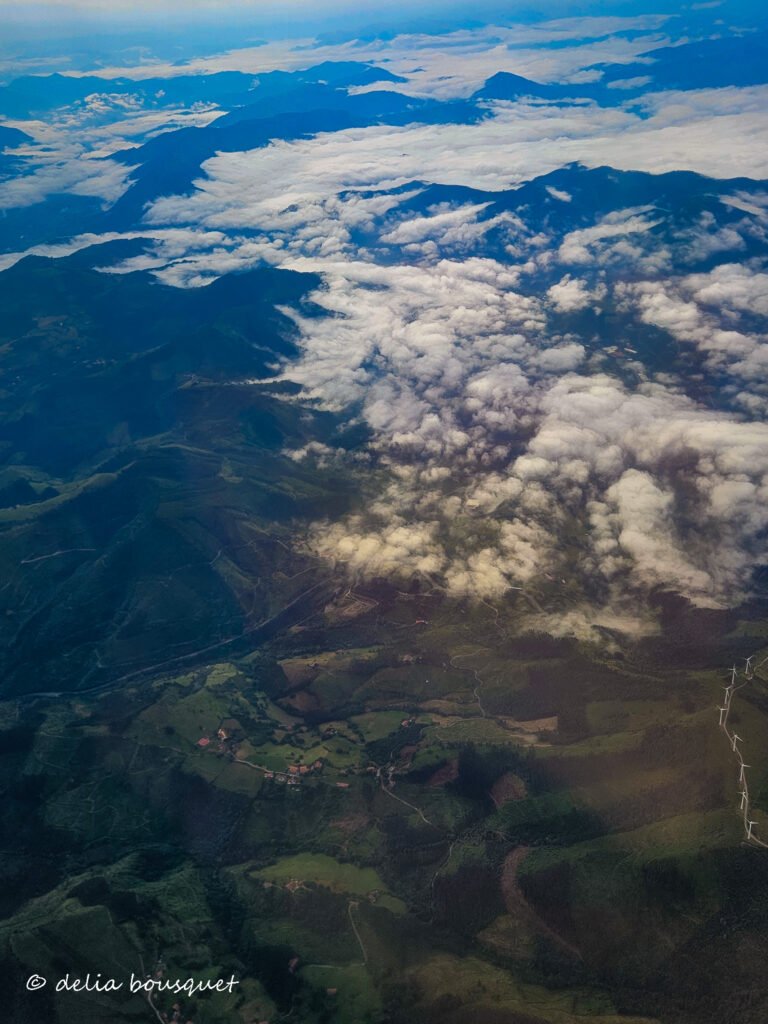
And of course—me, somehow always the accidental transportation help desk—had to turn around and answer everyone’s questions (in Spanish, of course) because they’d missed the announcement.
Someone please explain this to me: is it my clothes? My age? Do I just look like I know what I’m doing? Because I really don’t.
Anyway, how exactly a “too-heavy airplane at risk of crashing into the airport fence” magically became 90 passengers lighter in 40 minutes still baffles me.
And let me tell you—the landing at Bilbao definitely confirmed this whole “short runway” thing. We got so close to the end of the runway, and I’ve never been in such a harsh landing. The brakes slammed so hard I’m pretty sure we left half the rubber from the wheels on that runway.
Good news: I made it to Bilbao—two hours late, but I made it. Which, honestly, I couldn’t stop smiling about even before the plane touched the ground. Let me tell you, the view of the mountains and the city from the sky was absolutely fantastic. Better, even, than the bus ride through the mountains to Andorra.
I haven’t done a ton of flying in my life, but when I have, it’s always been to giant airports. So when I landed and discovered that Bilbao’s airport has a total of fourteen gates, I found myself wondering where the rest of the airport was hiding.
I got on the bus to town with no problem—well, until it started pouring.
In the past sixty days, I’d only experienced rain once, and that was the so-called “hurricane” in Barcelona. So, yes, you can blame the bad weather on my luck. Although, to be fair, it does rain a lot more in Bilbao with all the mountains and greenery.
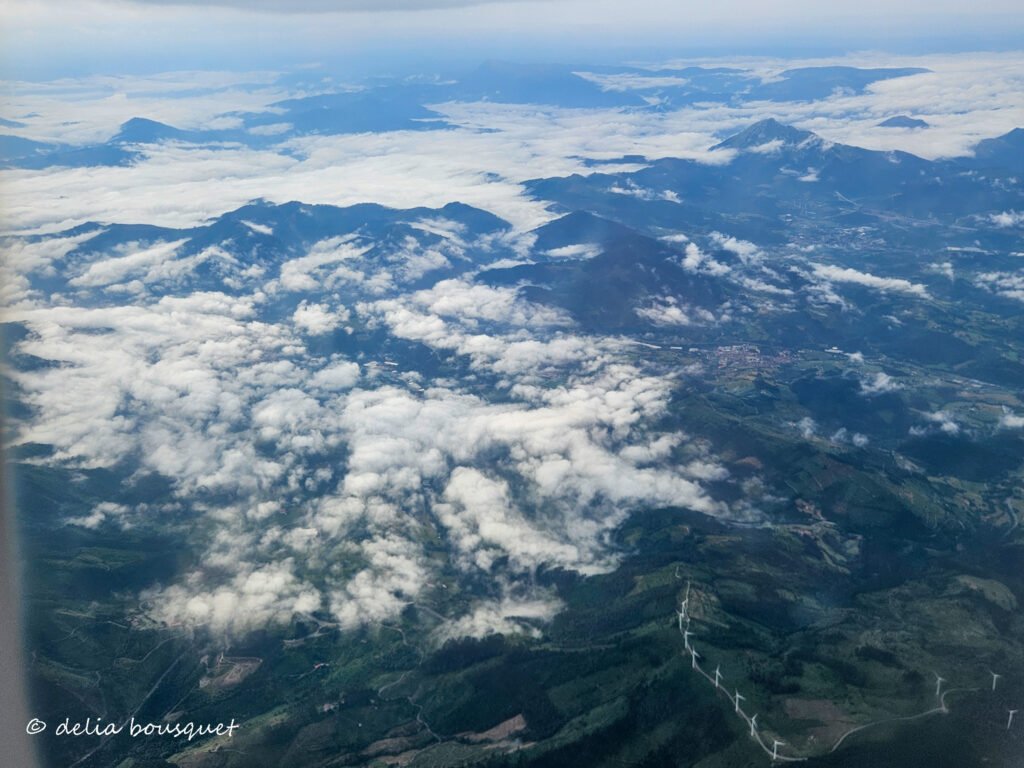
Pro travel hack: If you ever go to Bilbao, don’t leave your impermeable in Barcelona. (And while we’re on that—impermeable? What an odd word. Why isn’t chaqueta part of it?)
I assumed the bus labeled “Airport” had some kind of final destination, but no—it just kept making stops, one after another. And I had no idea where to get off, because it was pouring, and my only plan was to wander aimlessly around Bilbao. (The best trips have no plans—eight weeks of experience can confirm this.)
But honestly, I didn’t care where I got off. Because Bilbao hit me like a memory I hadn’t made yet.
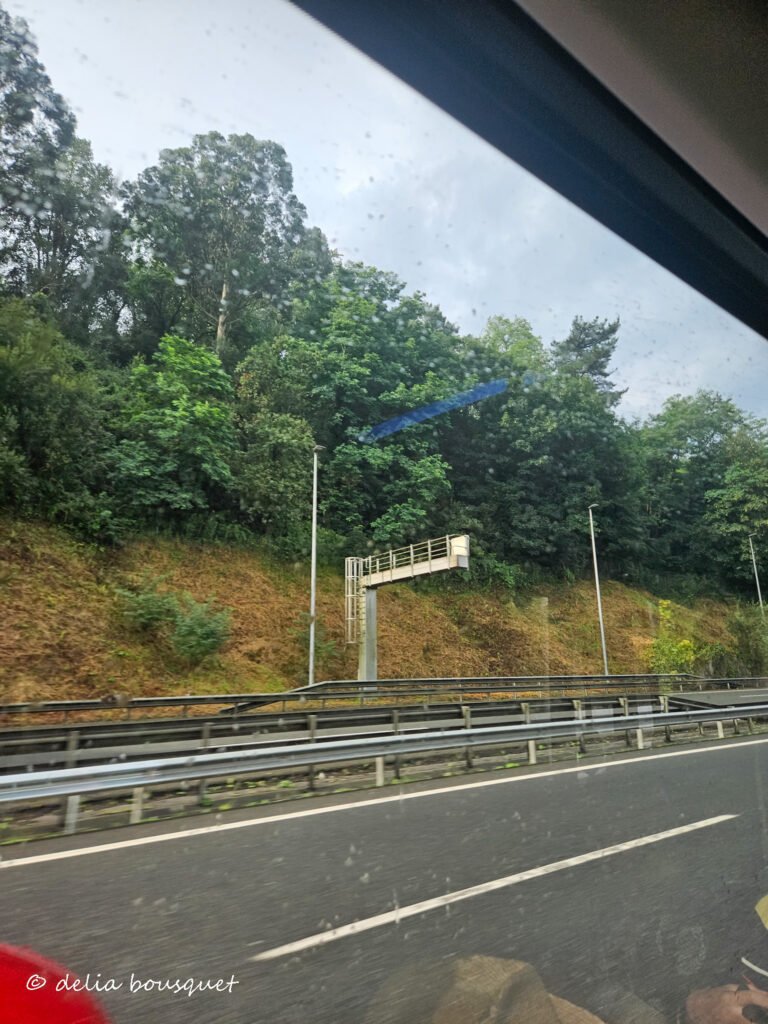
I saw a funny little Facebook post today that said, “Have you ever had a city just click with your soul?” It seemed dramatic—especially in the context of someone saying Valencia was that city for them—but in a way that isn’t cheesy or diary-worthy, Bilbao was that for me.
Nestled between green mountains and the nervous shimmer of the Nervión River, the city breathed in a way I hadn’t felt since the forests and farms of rural Connecticut—or even more broadly, New England. Not in obvious ways: Bilbao had no winding dirt roads, no sugar maples bending under snow. But in its stillness, as the rain poured in the early hours of the mañana, I couldn’t help but think of hikes and quiet walks with the dogs back home.
The river (which I later learned was indeed the Nervión) walked with me through the city—a calm, ever-present companion, like the stream near my childhood home, where the water only rushed when it had something important to say.
Bilbao had a rhythm that felt familiar: not the brash heartbeat of a capital city or of Barcelona, but a steady thump—slow, confident, ancient. It felt modern, but at the same time old and rugged, like it had seen things. Almost as if you might find someone up in the mountains, wearing a Carhartt jacket, ready to share their life story with you over the cornucopia of food Bilbao is known for.
There’s a feeling you get when you let yourself get lost in the calles or just stand staring up at the nature—it sticks with you, like the warmth of woodsmoke lingering on a scratchy old coat that’s somehow both old and new.
And maybe that’s what did it. Bilbao doesn’t shout to be loved like Madrid, Barcelona, or even Valencia. It lets you arrive, and then it asks if you’re ready to stay. Like the woods back home, it doesn’t care if you understand it right away. But if you stay long enough, listen closely, and walk its paths, it speaks.
(Or maybe that was just Gorka.)
After four stops—and my phone telling me I was “extremely close to a centro comercial”—I hopped off the bus and dashed through the rain, hoping to find a paraguas. I didn’t, but by the time I came back out of the mall, the rain had stopped.
With no more obstacles, I started walking—no plan, just observing the city and trying to get a general sense of its layout. Call it a paisaje lingüístico if you want, or maybe more of an informal estudio urbano—one that just happens to involve walking into every store possible.
I eventually ended up on what I later learned was the main vía, which, unsurprisingly, was filled with shops. One of them was Bimba y Lola—one of my favorite brands to look at. It’s so colorful and… extravagant? No, maybe not extravagant. Odd? Quirky? I’m running out of adjectives here.
I won’t bore you with the details of my purchases, but I did walk out with a much-needed new wallet to replace my $15 Amazon one, which was held together by glue and maybe a little love. It was definitely necessary, and it’s perfect—especially because it has a proper spot for all those monedas I haven’t been responsibly managing.
De hecho, I was bragging just last Friday about how I “manage” my coins by collecting them weekly for postales. But since my new friend paid for my postales last week, the coins have gotten a little out of control.
Bright side? Free coffee for the rest of the trip.
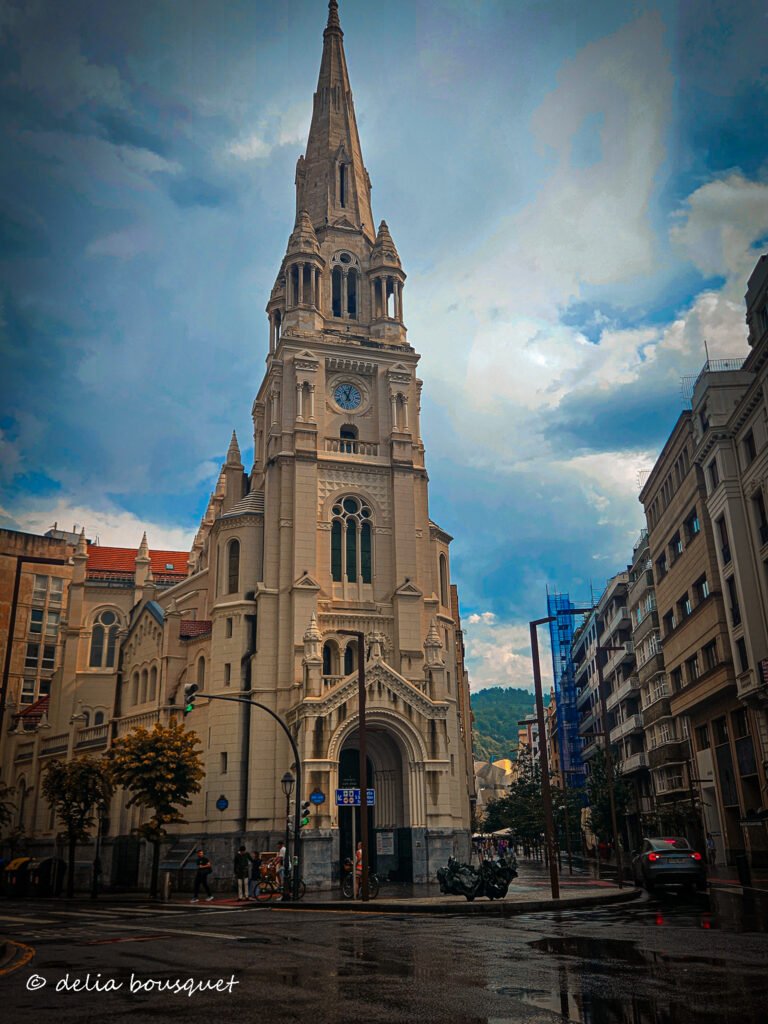
I say free, but it’s what they’d call “girl math.” Because in the scheme of money, I technically lost this money months ago—back in May—when I transferred dollars to euros. So, in girl math, if I use the cash, it doesn’t go on my credit card (which, after two flights this past month, an expensive Barça jersey, and an Andorra shopping spree, is looking a little high).
Not that bad, though. And considering I rarely buy things for myself unless it’s an emergency, I’d rather spend the money here in Spain than back home in the U.S. Plus, this wallet was like 75% off—so I’m calling it a win.
I continued down the block to El Corte Inglés. I didn’t need to wander through it again after Friday’s hour-long El Corte Inglés experience, but I did take advantage of their restroom—life hack for anyone traveling in Spain: if you need a free public restroom where you don’t have to buy anything, go to El Corte Inglés.
(Just… maybe look like you’re going to buy something, and don’t sprint straight to the bathroom. But honestly? They definitely don’t care enough to stop you.)
Following my bathroom stop, I ended up wandering into the old part of town, where there was a manifestación (protest) and music playing. After about an hour and a half of wandering, the town became absolutely packed—what I later discovered was some sort of music festival.

I’ve been to a lot of cities over the past two months. Call it an informal scouting tour of “Where’s the best place to get that dream piso with the sofa on the balcón?” Or maybe, “Where could I see myself going to grad school one day?” Either way, every city I’ve been to has had some kind of… issue.
Maybe “problem” isn’t the right word, but there’s always been something that makes me think, Yeah, I couldn’t live here.
Por ejemplo:
- Barcelona: Too big, lacks that local feel where you go to the supermercado or panadería and actually know the people there, lots of pickpockets, not that walkable. (I could go on.)
- Toledo: Not a lot of non-tourist shops in the old town, I would never drive there, kind of boring, not near much—always needing to take a 30-minute train to Madrid. Plus, endless hills and cobblestone paths.
I could keep listing these little flaws (and I have, in other blogs). But Bilbao? For perhaps the first time ever, I have no complaints. Well, okay, minus the bus system.
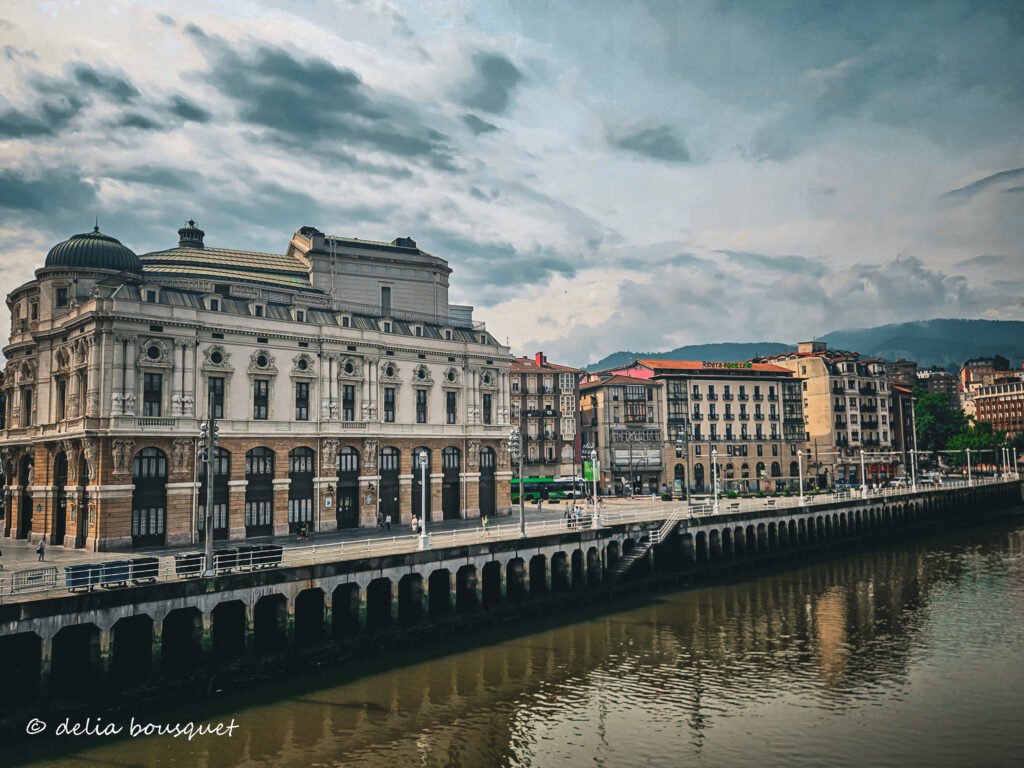
So maybe Bilbao really is just an amazing city. Maybe Gorka oversold it. Or maybe, after four weeks in the chaos that is Barcelona, anything felt better.
Because honestly, Bilbao has everything: food, more food, and when you think you’ve had enough food, just a little more. A Mercadona, an El Corte Inglés, shops, museums, music, your classic Gothic cathedral, a metro, a mountain/hill tram situation, gorgeous green mountains, a beach (which I hear is questionable, but it wasn’t that hot anyway), and great architecture.
Speaking of architecture—Bilbao surprised me. It felt almost French, and it was impressively consistent. According to my quick research, there’s no French influence; it’s mostly Modernist, including Art Nouveau and Art Deco, which I can definitely see.
It was refreshing to look at, especially after Barcelona, which is… well, a mess. Nouveau sits right next to the very feo racionalismo and novecentismo, or even gótico. Whoever thought racionalismo was a good architectural style clearly didn’t have eyes—it’s so ugly.

Quick thought on Mercadona, because I feel like I may have oversold it to some of you.
No, I’m not obsessed with Mercadona. No, I’m not actively hunting them down. And no, before this trip I did not think, “The best part of this trip will be Mercadona.”
Yes, I’ve seen 24 Mercadonas, but I’ve probably only been inside five. Why count them? I don’t know. Why do people count red cars or punch buggies on road trips? It just seemed fun.
At the start, I just wanted to see food in Spanish.
Thinking back to May—or even January—I remember how excited I was to see the world in Spanish. You know how Spanish classes in middle and high school love to label everything in the classroom? If I hadn’t had a roommate this past year, I might’ve done that to my dorm—labeling everything, making it a “Spanish only” zone.
Anyway, pues nada, I’ve definitely gotten off track here. But Mercadona has kind of become a symbol for me—maybe of “being a local,” but really of the true purpose of this trip: to live like a local, speaking Spanish, hyper-analyzing people’s lives like a spy.
And honestly, I think I’d be a great spy. I notice all the tiny details—mostly so I can write entertaining blogs, but also because, as I started hinting at last week, I’ve maybe (okay, definitely) fallen in love with this kind of stuff.
Like in those cheesy movies, where the girl always wants to go back to the city life she’s known, and waits until the final fifteen minutes to run after the farmer boy?
I’m not saying Spanish—or, more broadly, sociology, linguistics, or sociolinguistics—is the farmer boy. But if there’s one thing I learned from Bilbao, it’s that I finally got the answer to the last big question I came to Spain hoping to figure out.
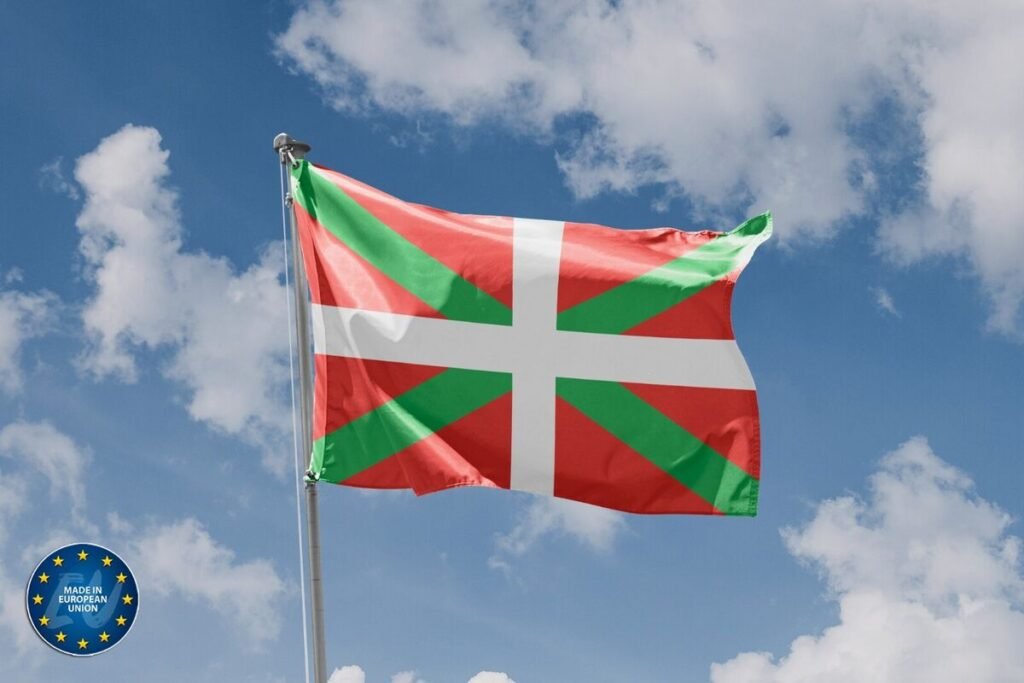
“Answered” might not be the right word, though. Because the truth is, the question was answered a long time ago. I had all the red flags telling me I was doing the wrong thing, and all the green flags telling me I was doing the right thing. But sometimes, it’s hard to admit the red flags are real, even when they’re waving right in your face—especially when you’ve spent so long believing the path you were on was the right one.
But at a certain point, you have to acknowledge that flags can change colors. And there’s no point in ruining your life just because the path you’re on once had a green flag.
Now, the new path may be scary—full of unknowns and more questions that I doubt Spain will magically answer. But I think Spain—or maybe Bilbao more specifically—gave me exactly what I needed.
I know I’m being broad here, and that’s on purpose. I still don’t have all the answers to my own questions (or to the questions I know other people have for me). But at some point, you have to lift your head and say: I can’t stand being in these classes anymore. And admitting that is absolutely terrifying.
But anyway—back to the day, and more importantly, how I came to this grand epiphany at 1 a.m., sitting in the middle seat of a delayed Vueling flight.

At 1 p.m., I met Gorka at the metro.
For context: Gorka = Spanish prof from Princeton for two semesters. And honestly, even before this trip, I would’ve told you he’s the best prof ever. But after what you’re about to read? He’s… well, I don’t know if there’s a phrase beyond “the best prof ever.” Maybe the best-best prof ever.
Another point of context: about 96% of my interactions with Gorka have been in Spanish. Like, yes, I knew he spoke English—way back in September we had a quick English chat—but Gorka is one of the few people who, in my brain, exists only in Spanish.
The brain is weird like that, isn’t it? I would never even think of sending him an email in English. Because when I think about communicating with Gorka, I think in Spanish. As I hinted back in my Salamanca blog, that’s a really hard thing for a Spanish prof in the U.S. to pull off because the default will always be English. But Gorka does it better than any Princeton prof or teacher I’ve had.
(Gorka, you absolutely cannot tell anyone I said that.)
To show you how weird the brain is: I was even hesitant to send him this blog because, obviamente, it’s in English.
So you can imagine my shock when he offered me a whole day in English and that he had been reading the blog.
Honestly, I probably needed it. There was no way I was going to explain lo que pasó en el aeropuerto por la mañana cuando 90 personas necesitaban salir del avión porque the runway—pista, that’s the word that messed me up—en Bilbao es muy corta.
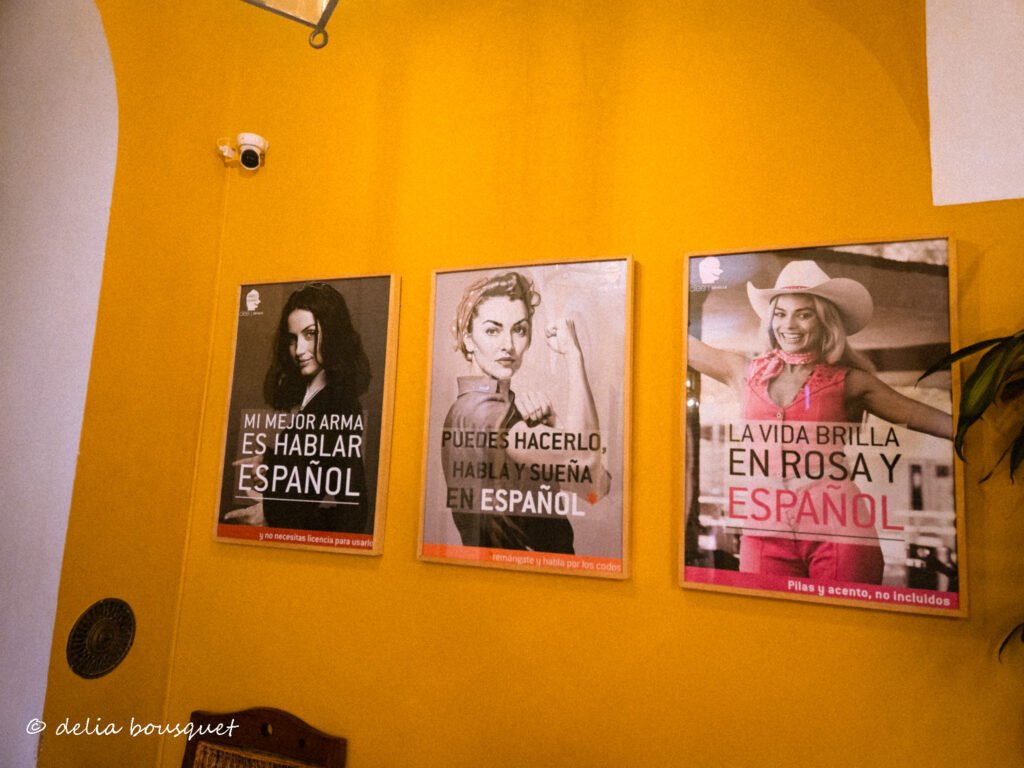
But at the same time, seven straight hours of Spanish might have been too much for me. I mean, technically, I am doing 24/7 Spanish here in Spain, but seven hours of conversation—even in English—is a lot.
And while my Spanish has definitely improved, I don’t know if I’m at the point of purposely seeking it out for seven hours straight. Of course, in the streets, shops, and classes, I use it all the time. But would you purposely jump into the deep end of the pool when no one’s in the shallow end?
(I mean, I would, so maybe that’s not the best metaphor. But anyway, can’t change the past.)
So—sorry, Gorka. You might no longer be exclusively “Spanish reserved.”
Though, debemos encontrar un tiempo para charlar en español en el otoño porque te prometo que mi español es mejor—aunque para cuando llegue el otoño, mi acento quizás suene muy mal con la influencia de Sevilla… ya ha empezado, y solo he estado aquí un día.
Speaking of accents: before coming to Bilbao, I didn’t think el País Vasco had a distinct accent. Maybe they don’t. Or maybe they do. But I swear they do, because they all sound like Gorka.
No joke—I must have turned around like five different times in the street because random people all had that same accent. It’s… oddly specific.
So what did I do for seven hours in Bilbao?
A lot. Exactly 13.79 miles (22.193 km) of walking, to be precise—not quite my usual 25 km for trips like this, but hey, I didn’t get up and pace around the plane, so that one’s on me.
I saw what I’m considering all the sights: the plaza, the old city, the new city, the Guggenheim, Puppy and her friend araña, a tram up a hill, and even a statue that looked suspiciously like my dog. (Plus more that I can’t fully remember at the moment, and my notes aren’t much help either. I also took embarrassingly few pictures—should’ve taken more!)
But I also got to see the fun sights—the ones that always come with stories:
- the university where Gorka studied,
- a hotel (I think?) where he once worked,
- and the now officially titled “Gorka’s Place”—the bar/restaurant he’s apparently been to a million times.

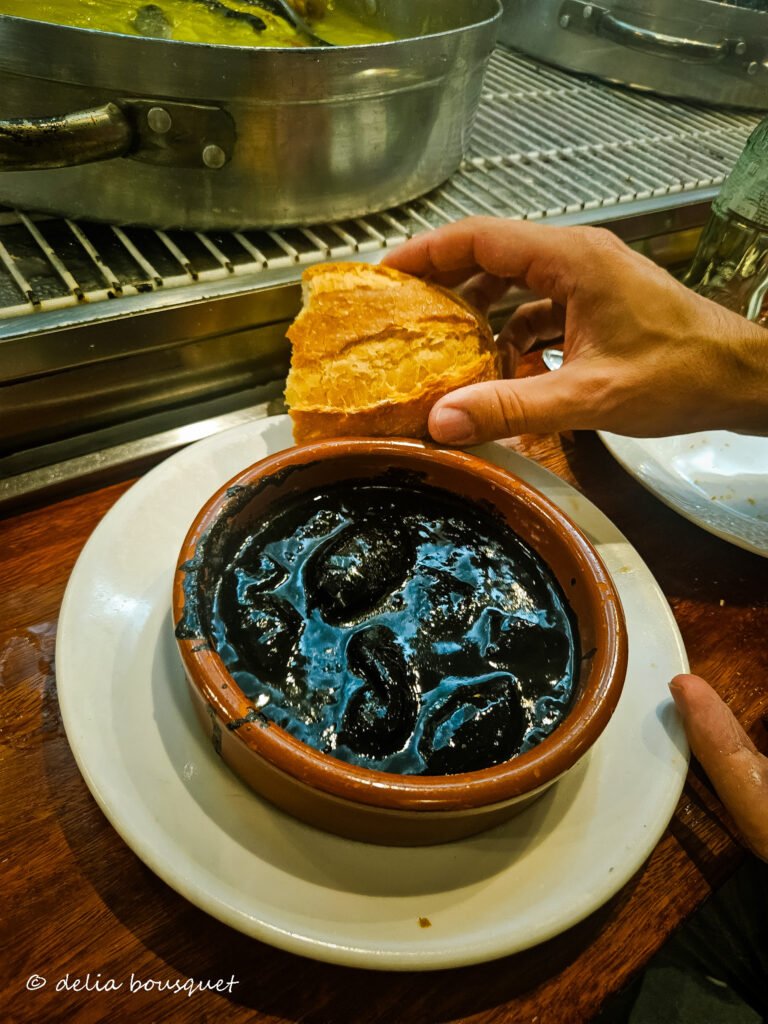
For anyone who needs the official name, Google Maps Timeline tells me it was Rio-Oja Restaurante. That’s where I got to try some “non-mainstream” food.
Now, before my friends (hi Lucas, hi Simiao—miss you guys!) take this out of context, let me clarify: I’ll try almost anything once—as long as it’s not illegal, dangerous, or drugs.
And honestly? For “non-mainstream,” this was pretty chill. No bugs. No cow tongue. Just squid cooked in ink and some kind of cod cooked in fat. Both were great—maybe not “best meal of my life” great (I’m a lobster girl at heart), but a solid 8/10. Maybe 8.5 if you count the fun factor of eating something pitch black that could’ve absolutely destroyed my very white shirt. (No stains for me, though—miracle.) It could’ve even been a 9 if I had gotten the piece with the tentacle, but that would’ve required luck, and, as you’ll see from what happened after lunch, luck was not exactly on my side that day.
I won’t bore you with every detail of the sights—you can look at the pictures for that—but I definitely got the best tour: history, a few jokes, some business venture brainstorming (café en parques, anyone?), a sprinkle of politics (Elon Musk Party, seriously?), and even some “work”-related talk. (Sorry, Gorka—couldn’t help myself.)
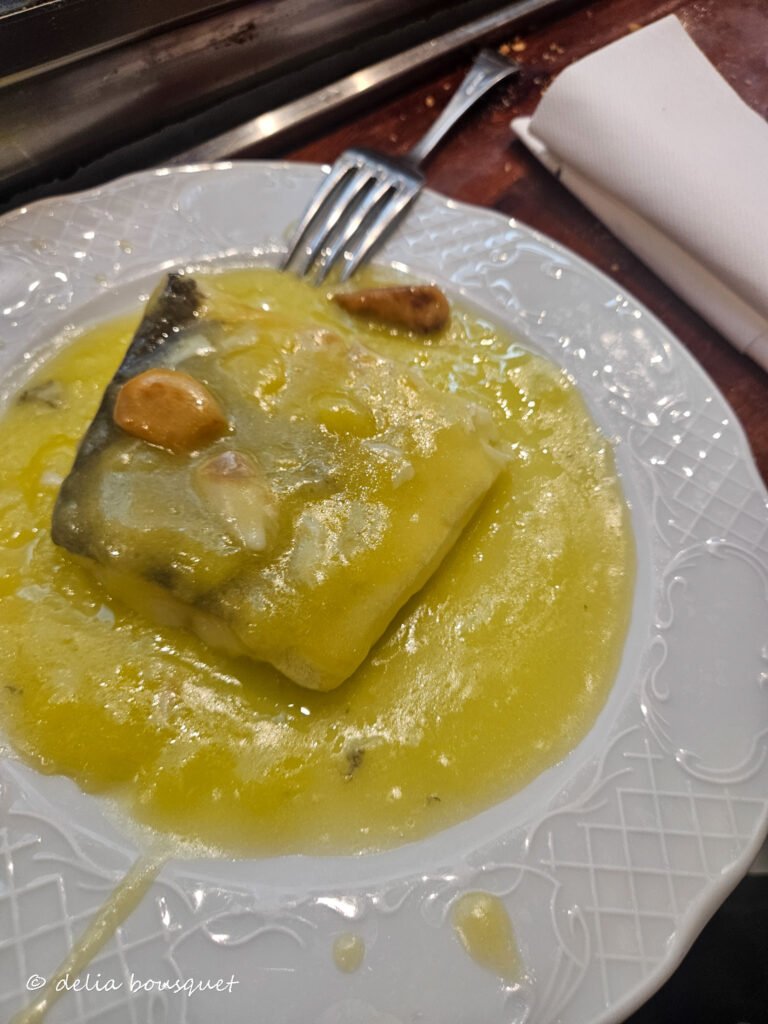
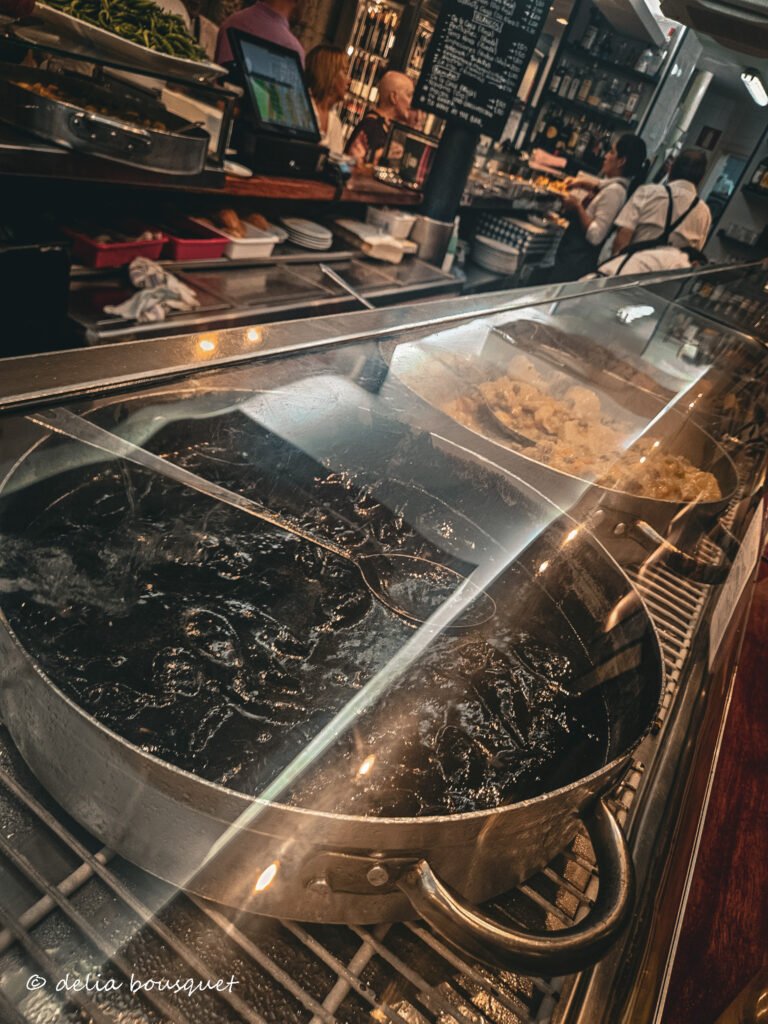
But here’s the thing: that day planted a seed.
Because by 1 a.m., sitting in that middle seat on the delayed Vueling flight, I realized something kind of huge:
I could talk about Spain, Spanish, sociology, linguistics—all of it—for hours. And that day, just talking about these things, was easily one of the best days I’ve had all summer.
(Sorry, art and Don Quijote—you get boring fast.)
The funny part? I can normally give an opinion on anything. I know what I like, what I don’t. But when I was standing there at “Gorka’s Place” trying to explain why I study what I study, I couldn’t give a coherent answer. And that—I think—planted the right kind of seed.
Because it’s not that I don’t know what I want. I do. I can plan my whole life out: the dream piso with the sofa on the balcón in Bilbao, this blog, some published articles, traveling, a doctorate degree. That’s easy.
The problem is values. The fear of stepping off this pre-destined path I’ve been on since high school.
And here’s a hint: none of that “life plan” ever involved a piso in Spain or traveling the world at 19.
I’m not saying I suddenly want to be a Spanish major. But maybe there’s room for sociology, linguistics, writing… I don’t know. If anything, the plan just got more complicated.

Because, as I wrote in the cover letter for my writing seminar final (aka the most important part of any Princeton paper because you have to make up some story about how much you “grew as a writer”):
👉 I have no idea what research in the humanities actually looks like.
Science? Easy. You send out ten emails to labs and hope some overworked, caffeine-fueled grad student takes pity on you.
But humanities? What does that even mean? It’s not a lab. You don’t have three people all reading the same book. Would I be the coffee-run person? The library-book-returner? The grader? (Which I could definitely do, by the way—I’m basically an expert in everything coffee, from lattes to drip in la selva de Costa Rica.)
And what if they don’t drink coffee? Is it more of a tea situation? (I can do tea. In fact, I’d argue it’s the best way to end a day. Some people party at eating clubs. I drink melatonin tea and read a good book.)
But seriously—what’s the daily life of these professors? Are they just sitting at home reading stuff, then—like my writing prof says—“deciding to pick a fight with someone” and hoping a journal thinks the fight is worth publishing?
So, Gorka, I know I’ve already asked too many questions, but I might need you to fill me in here. And if you or anyone you know is looking for one of these “assistants,” I’m very available.
But that’s an August problem.
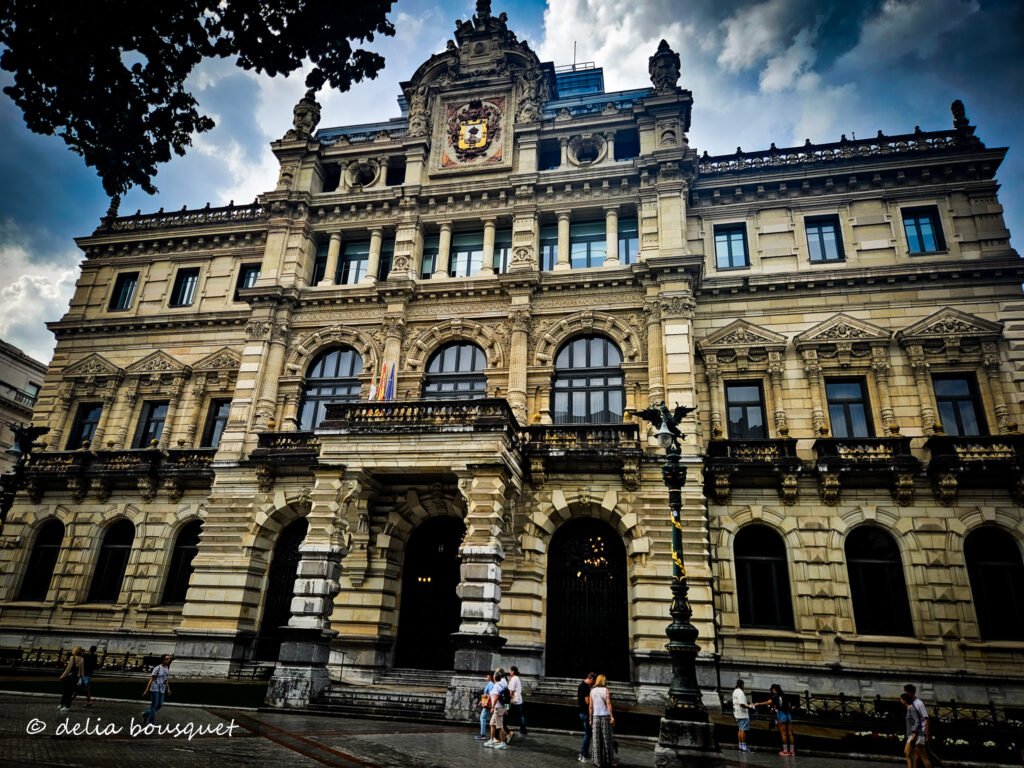
If I’m remembering correctly, the bad luck started when we couldn’t even find a tortilla—or at least a bocadillo—for dinner in the airport. Eventually, we found something, headed to the bus station to get my ticket for the airport and said my adiós.
This is when I discovered that the tap function on my tarjeta had officially died.
Now, before you panic—Mother, if you’re reading this, don’t send me a wild message about how I’m going to pay for things for the next month. The chip works. Google Pay works. I have like four backup methods of payment. But still, it was the second red flag that the universe was not on my side that day.
The guy at the counter told me which puerta to go to. I smiled, said adiós, and got on the bus.
The wrong bus.

I ended up in Guernica, sitting cross-legged in the middle of a bike path like Picasso himself had personally sent me there to contemplate my life choices.
To be fair, I can’t completely blame the guy at the bus counter (though I’m choosing to believe he sent me to the wrong puerta). There was literally only one bus, so something definitely went wrong.
And, honestly, there were red flags from the start:
- The bus didn’t look right. The airport bus I had taken before was a city-style bus with standing space. This one? A coach bus.
- No one had luggage. Now, I didn’t either, but what are the odds that no one on this “airport” bus had luggage? (This realization wasn’t made until after the bus had started moving).
- We drove right past the airport. Optimistic me thought, Maybe it loops around? (Spoiler: it did not.)
I sat there in full-on denial for a good half-hour. I even started laughing at one point because the irony was just too much—during this 30-minute joyride away from the airport, I was actually writing notes about how great my day in Bilbao had been.
I was probably on that bus for 30–40 minutes before deciding to get off. Part of the issue was that I needed a way back—getting dumped in the middle of nowhere wasn’t going to help.
When we finally rolled into Guernica, I spotted train tracks and enough cars to think, Okay, I’m not going to get kidnapped here. So I jumped off. (Illegally, by the way—everyone else scanned their tickets to get off, and I’m fairly certain mine wasn’t valid for this bus at all.)
I pulled out my trusty ChatGPT app and started planning a return trip, which was going to involve a mystery hour-long train ride.
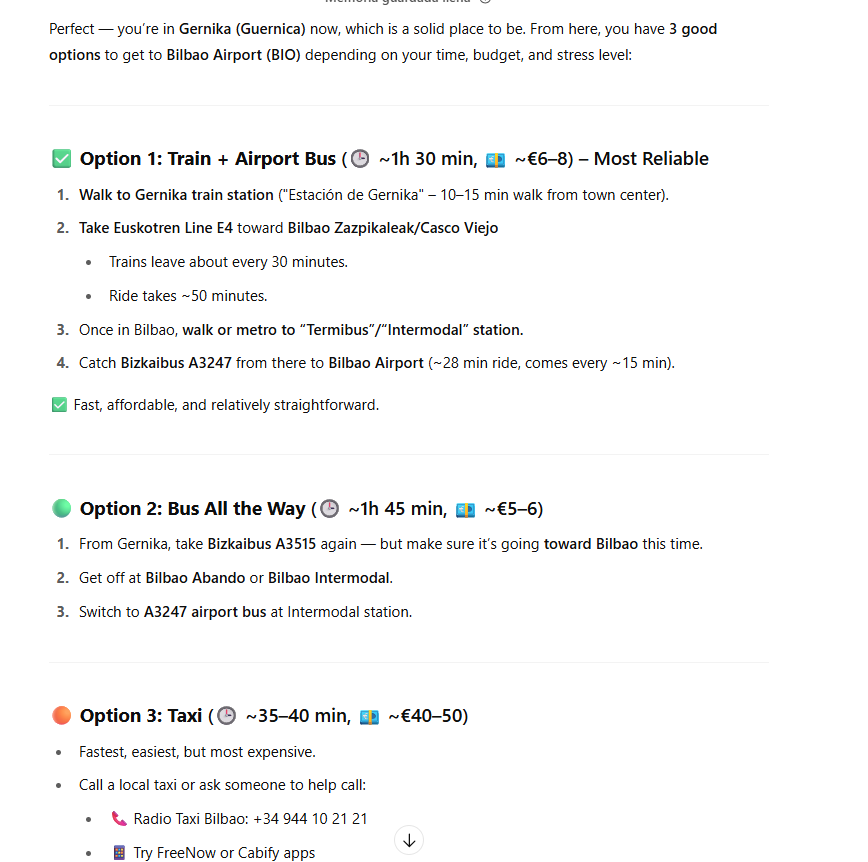

And then my phone buzzed.
Gorka.
A message asking if he should come pick me up.
Now, the delay between me realizing I was on the wrong bus and finally messaging him was… let’s just say, longer than it should have been.
But thank God I did respond, because—to give you an idea of how very wrong this bus was—it was a 45-minute drive with tolls for him to come get me.
So yeah, I really messed that one up.
So what did I do in my 45 minutes of waiting? Sat against a fence in the bike lane on the ground. Called my mom—had no idea what to say—and probably said “Mom, I think I just did the stupidest thing in all of my life” like 30 times. Convinced myself not to start crying in the middle of the bike path and maybe tried to come up with something to say when Gorka arrived.
(Spoiler: I did not… besides “bien,” and I was definitely not bien.)

Anyway, he arrived, and thank God he had someone with him because I don’t think I would’ve survived 30 minutes to the airport in silence after that. It was a mix of emotions, and there was one point along the drive where I couldn’t stop laughing. Not because it was funny—more because I just didn’t know how to react.
I mean, could you even imagine months ago, back in Spanish 105, that I’d be sitting in a random car in Spain with my Spanish prof and his friend, racing toward the airport after getting on the wrong bus and ending up in a town famous for a Picasso painting?
Ironically, the best way to describe this whole ordeal is the painting “Guernica” itself: screaming horses, chaos, a crying woman, a screaming woman hanging upside down, dead people, and general destruction. And like the painting, it had its own special viaje before ending up somewhere it belonged (in my case, the airport, not the Reina Sofía).
I mean, it’s cool that I got to go to Guernica, where the painting is honored, but yeah… I would’ve loved to go under different circumstances.
So anyway, if you really want to get to know a professor, just go to a foreign country and get on the wrong bus. You’ll have an inside joke for a while. Well, maybe more of an outside joke, because if I were Gorka, I would 100% be telling this story to everyone I know.
Let’s just hope it doesn’t make it back to Princeton or into some future recommendation letter. What happens in Bilbao stays in Bilbao.
In all seriousness, I don’t really care—I hope it becomes something people can laugh about. As I write this now, in the pitch-blackness of my habitación, I can’t stop laughing because it’s just too obscure and out there.
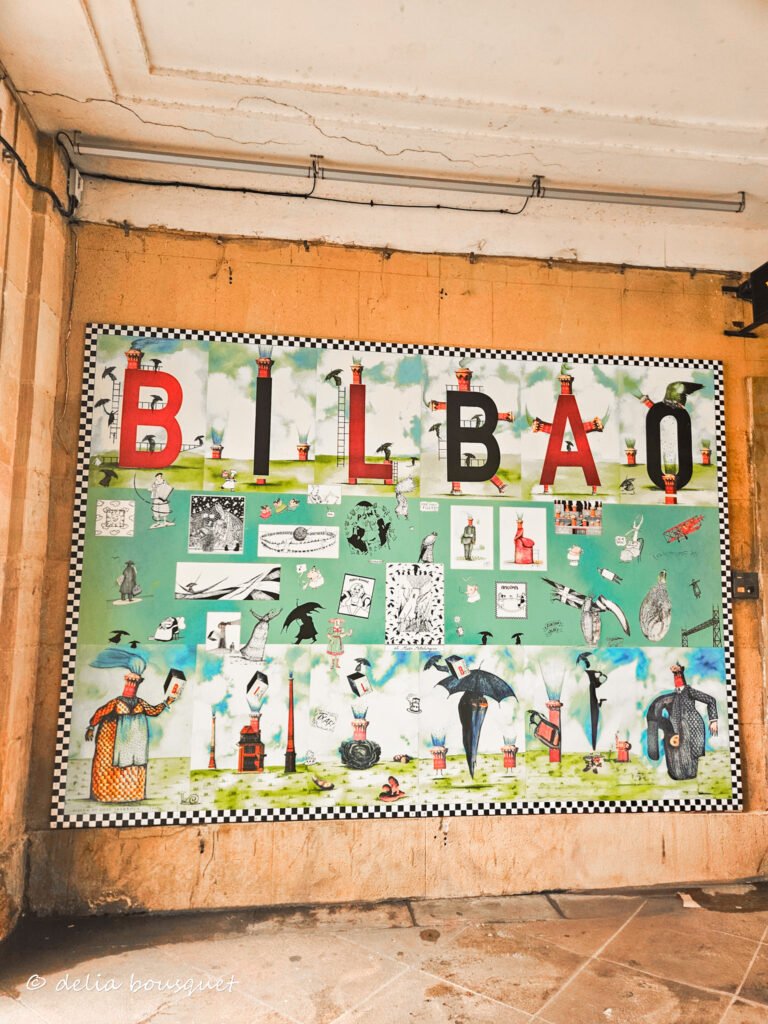
Before this incident, I’d had two months of basically problem-free travel. Sure, I accidentally booked a train ticket for Sunday instead of Saturday and lost 7 euros, and I missed a connection in Madrid from Salamanca (which wasn’t my fault—the Salamanca train was 30 minutes late), but this one? This one was the worst.
Just a reminder of my humanness and lack of robotic perfection. Sorry about that. Definitely not showing off my best qualities here.
To be totally honest, I don’t even know what you say to someone after they not only take time out of their limited time home to give you a tour (and refuse to let you pay for a single thing) but also bail you out after all of that. And this bewilderment is coming from me, Delia Bousquet—famous writer of thank-you notes so good people cry. (No joke.)
But Gorka? I’m a little lost for words here. Maybe I need another week. Is there even something beyond all the muchísimas and graciases?
Give me some time—perhaps when I’m not in the heat of Sevilla, I’ll have a more profound response. TBD. “It’s an August problem.”
But overall? Bilbao was an amazing experience. I’d give it an A. Would’ve loved to give it an A+ had there been a little more “participation,” but… nah, just kidding—it’s an A+. It was awesome.
The ironic part of all this is that after rushing to the airport—or maybe “escorted” is a better word, because after the incident I definitely lost some faith that I wasn’t about to end up on a plane to Málaga or France—turns out my flight was delayed two hours. So really, I was ridiculously early for this flight.
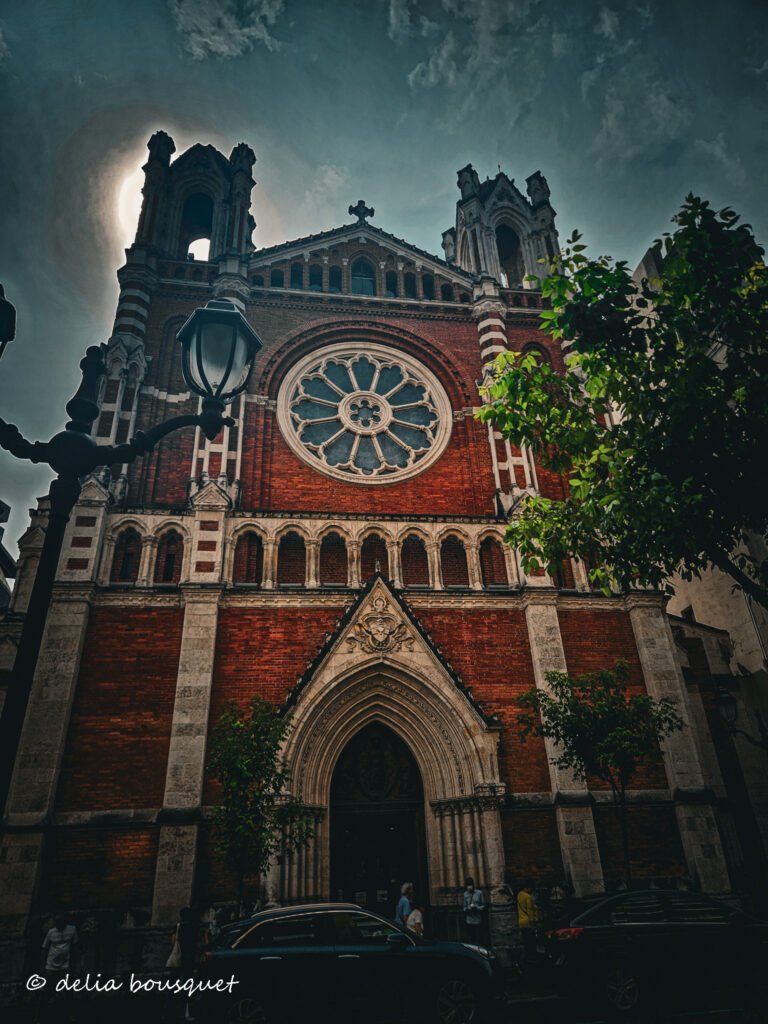
I got back, waited a ridiculously long time for the Cabify (which still went to the wrong location, even though Cabify is very strict about where they have to pick you up—planta 0). I even got charged for being “late” to the Cabify because he went to the wrong stop.
Don’t worry, I contested it—in amazing Spanish, might I add—and got my 4 euros back. There was even an “investigation” into the matter.
I got home at like 3 in the morning, making this almost a 24-hour trip.
Sunday involved sleeping in and going for a solo walk around Gràcia to find a good breakfast because the casa didn’t even have pan.
Like, what am I supposed to eat? Apparently nothing.
But I ended up finding my favorite coffee and croissant in Barcelona during that walk. I’ve even become a juice person.
I spent the rest of the day working on posting last week’s blog and packing, since I was all alone.
The family did tell me on Thursday that they were coming back that night. Naturally, I assumed somewhere in the 6–7 pm range since they said we’d have dinner. But at 9:44 pm, I got a message saying they wouldn’t be back until 10:30 and that I should eat by myself.
I had no dinner prepared in the famous tuppers and am not allowed to use any appliances other than the microwave, so I settled for rice cakes, peanut butter, and yogurt. Gourmet, I know.
At 10:30 pm, just as I was about to go to sleep, the dad came back—alone—and casually asked how Bilbao was. Then he informed me he wouldn’t be driving me to the airport tomorrow after all, even though he had promised on Thursday. His reason? He didn’t want to wake up that early. (Note: he knew the time of my flight when he offered in the first place.)
So that was that. I booked a Cabify that night, and no one said goodbye, no “nice meeting you,” no explanation for why the rest of the family decided to stay at the Costa Brava. Just: “Wow, that was a short trip to Bilbao.”
I didn’t even get a chance to give them their gift—though maybe they weren’t that deserving of one. I still left it on the TV for whenever they decide to return home.
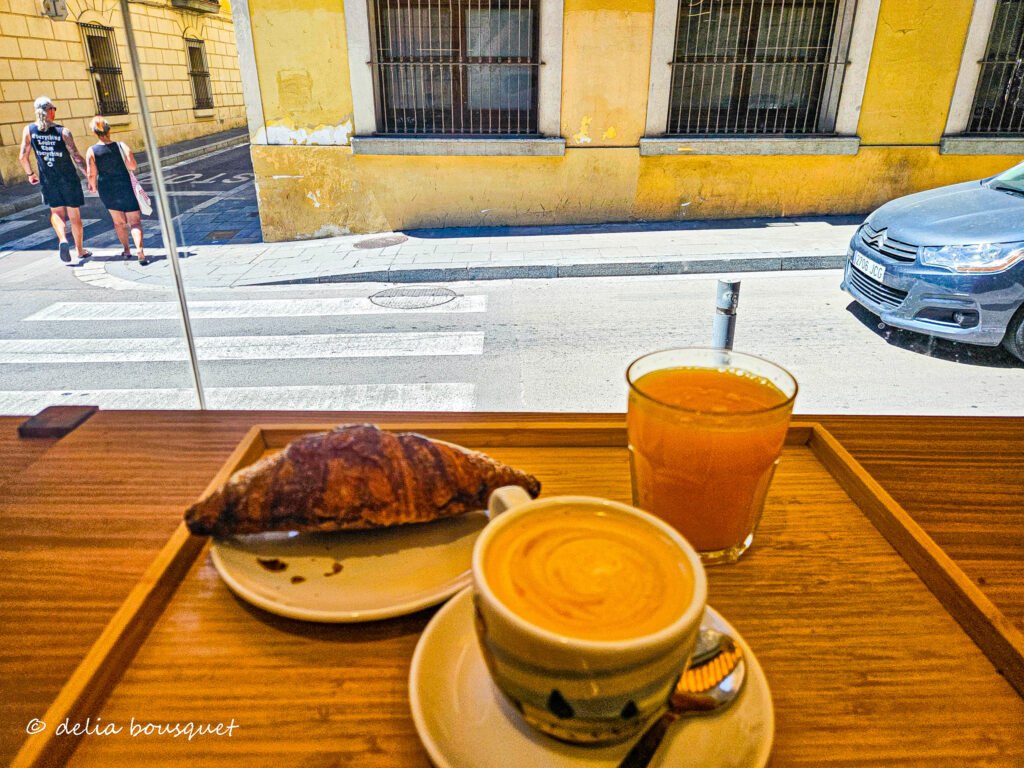

At 3 am, I woke up, got in my Cabify, and had the thrilling experience of flying Ryanair for the first time.
First thing I have to say: you do NOT want to fly out of Terminal 2 at BCN. It’s way bigger than T1, and there are way too many people.
Second, Ryanair doesn’t have self-check-in kiosks for bags, so I stood in line for about an hour. My suitcase was 19 kg—one kg under the limit—which felt like a small personal victory. I did have to throw out “the essence of wellbeing” because it didn’t seal. A tragic moment, but don’t worry—I saved the wrapper for the memories.
Being a kg under also meant I probably could’ve thrown my books into the suitcase instead of hauling them around in my backpack, but es lo que es. (And yes, before you ask, I have not found a replacement for “the essence of wellbeing” in Sevilla. I’ve been forced to settle for “Apricot.” What a lame name.)
To make matters worse, my randomly assigned seat was in the emergency exit row—specifically by the window. I know what you’re thinking: “Delia, people pay extra for those seats.” But honestly, I think the airline should be paying me to sit there. Like, maybe a free drink at least? Why would I want to be the person responsible for opening the door and deploying the slide? No thanks. Someone else can be the first to jump out of the plane.
On the bright side, when we landed in Sevilla, I finally got to do something I’ve always wanted to do: walk on the tarmac. I even took a picture because I was so excited.
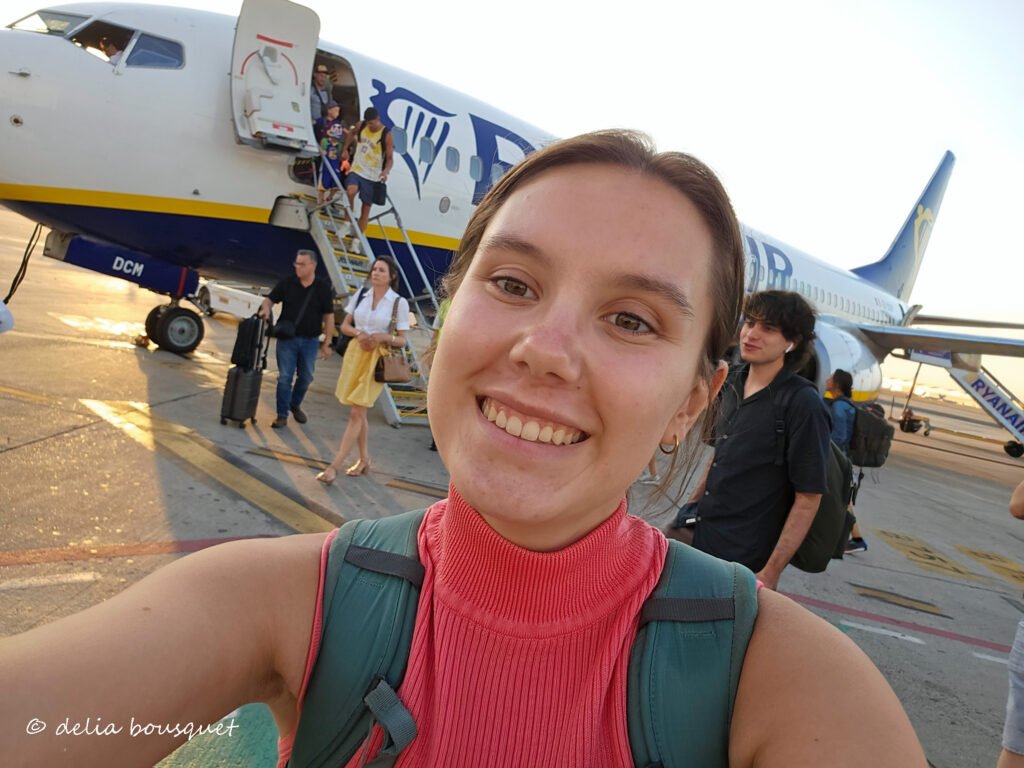
From there, everything went smoothly. The program picked me up at the airport, drove me to my homestay, called the señora to come get me, and I basically slept the entire day.
Now, some quick homestay updates:
I have a persiana again, which is both a blessing and a curse. On one hand, fantastic—keeps the room completely dark, perfect for siestas. On the other hand, I can already tell that I’ll be fighting the persiana wars again (looking at you, Toledo).
I also have what I’m calling an AAP—aire acondicionado personal. A personal air conditioner with my very own remote! But I’ve already been warned about the dangers of leaving it on too long or running it while I’m not home because electricity is expensive. And now I’m supposed to unplug every appliance when I’m not using it. Does it really take that much electricity to keep a toaster plugged in all day? I’m low-key terrified to turn on the AAP.
My room, though, is super nice. A bed that doesn’t fold down from the wall, big drawers, tons of shelf space. And for the first time ever, I’m not in some little boy’s Lego-filled room. This one has shelves of books and an actual writing vibe—perfect for the blog. I’m also thrilled that I have a window that looks outside instead of into a hallway. It feels less like a cave.
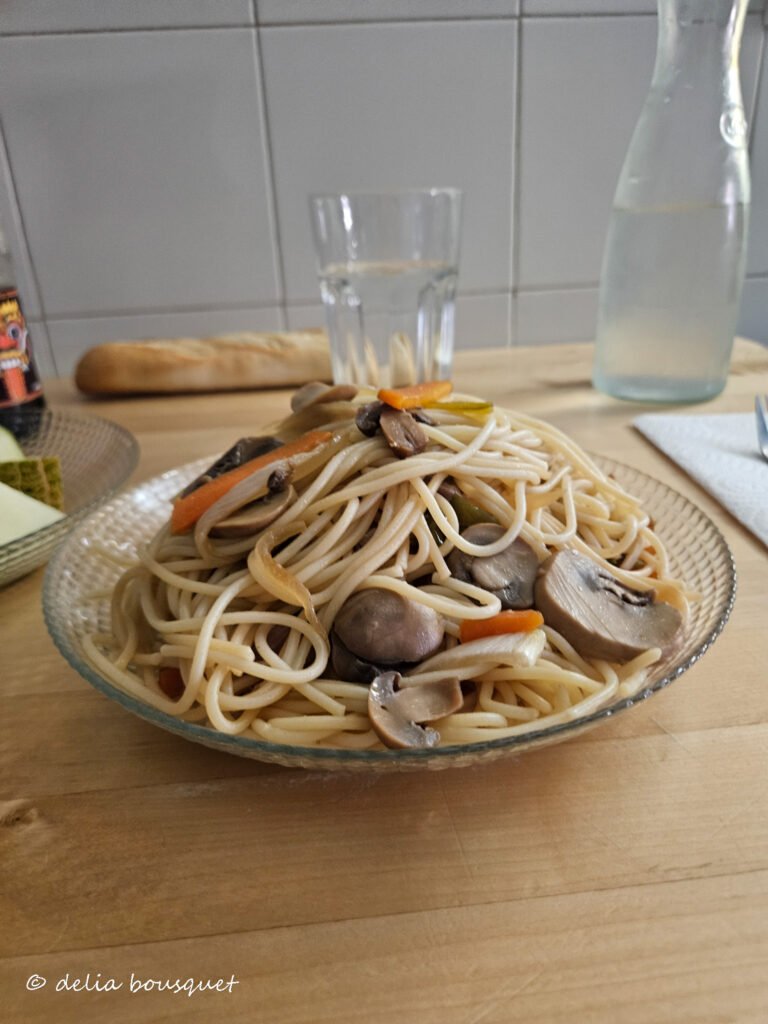
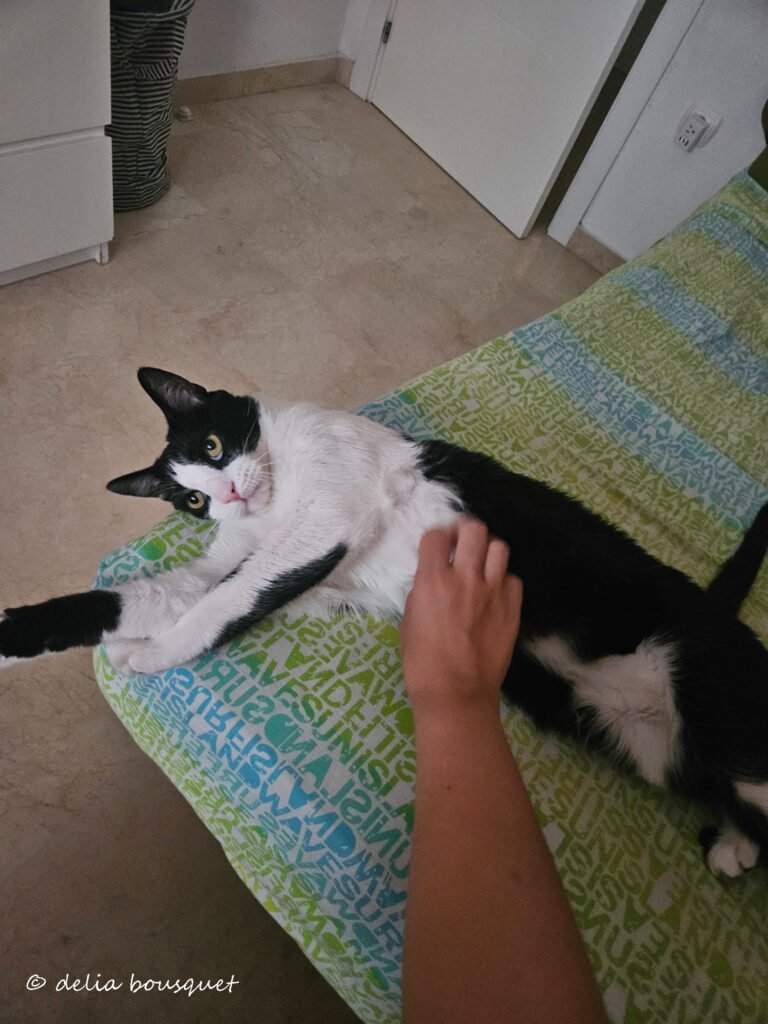
The food situation, however, is… a lot. So. Much. Food. Multiple platos every single meal, even though it’s so hot I barely want to eat anything. And the weirdest part? The meals are made just for me. I eat alone in the kitchen while the rest of the family is around, but I haven’t actually seen them eat once in the past 24 hours. No clue what’s going on there.
For context, I’m living with a mom and her three college-aged kids, plus a gato and a perro. The dog doesn’t like me, but I’ve already befriended the cat—who is currently asleep on my bed as I write this. The cat is huge. I’ve never seen a cat this big. The pictures don’t even do it justice—it’s ridiculous.
The layout of the piso is absolutely terrible—everything is divided into separate rooms, and because of the heat, all the doors have to stay closed. I feel very locked in my room and isolated, especially during my solo meals while the family is all there. I kind of just miss talking to people—in English or Spanish—because, honestly, I’d consider myself an habladora.
That brings us to today, Tuesday, which was filled with orientation stuff. Unlike Barcelona, this orientation was actually useful—and in Spanish. Oh, and did I mention that everyone here (meaning the students) speaks Spanish this time? It’s a low bar, considering there are only five new kids (counting myself) and maybe eight total, but still—way different vibe than Barcelona.
My orientation group is literally just me and one other kid!
It’s actually super fun being like the local guide, sharing travel stories and giving out my Mercadona lunch hacks (they all live in residencias, so they need them). We’re already talking about heading to Portugal, maybe. The program feels like an actual program this time, not just a class with some activities sprinkled in. I even know everyone’s names—and it’s only day two!
I’m so excited for our overnight trip to Cádiz this weekend (paid for by the program). I might even try to squeeze in travel plans for domingo, but that’s tomorrow’s problem. Only four weeks left—I’m ready to see everything. It’s fine, I can sleep in August.
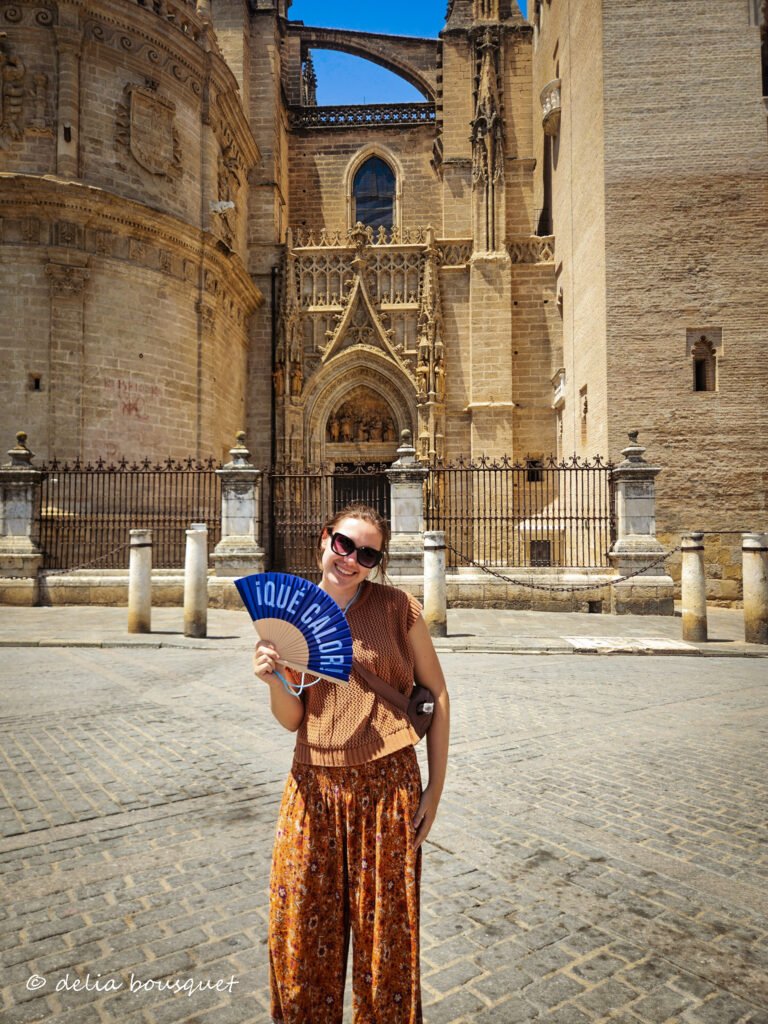
It’s also wild how different it feels here—like I’m in a completely different country, or maybe back in the same country where Toledo exists. Catalunya just has such a different energy compared to the rest of Spain. Bilbao felt different too, but still had plenty of “Spanishness” to go around.
And yes, the heat in Sevilla is… something else. It’s almost so hot that it doesn’t even feel hot anymore—if that makes sense. (Though Google suggests I should probably see a doctor if that’s really the case.)
I did get myself a new abanico in honor of my first host mom—the one I’ve been searching for since May. It says qué calor—no translation needed. I’ve also discovered the joy of Aquarius, which I think is a sports drink? Google seems to agree, so I’ll probably be drinking a lot of it for the next four weeks.
I don’t really have a great way to wrap this up, and I’ve definitely rambled long enough, so I’ll leave you with a quote and call it a day, vale?
“No hay camino para la felicidad, la felicidad es el camino.”
If that’s true, then maybe all of this—wrong buses, too-hot pisos, and qué calor abanicos included—is exactly where I’m supposed to be.
Palabras de la semana:
- Pista – runway
- Retrasar – to delay
- Impermeable – raincoat
- Para cuando – by the time
Not a lot of new words this week, but to be fair, it’s only been four days—and one of those was spent speaking English. 😊
Nos vemos el próximo,


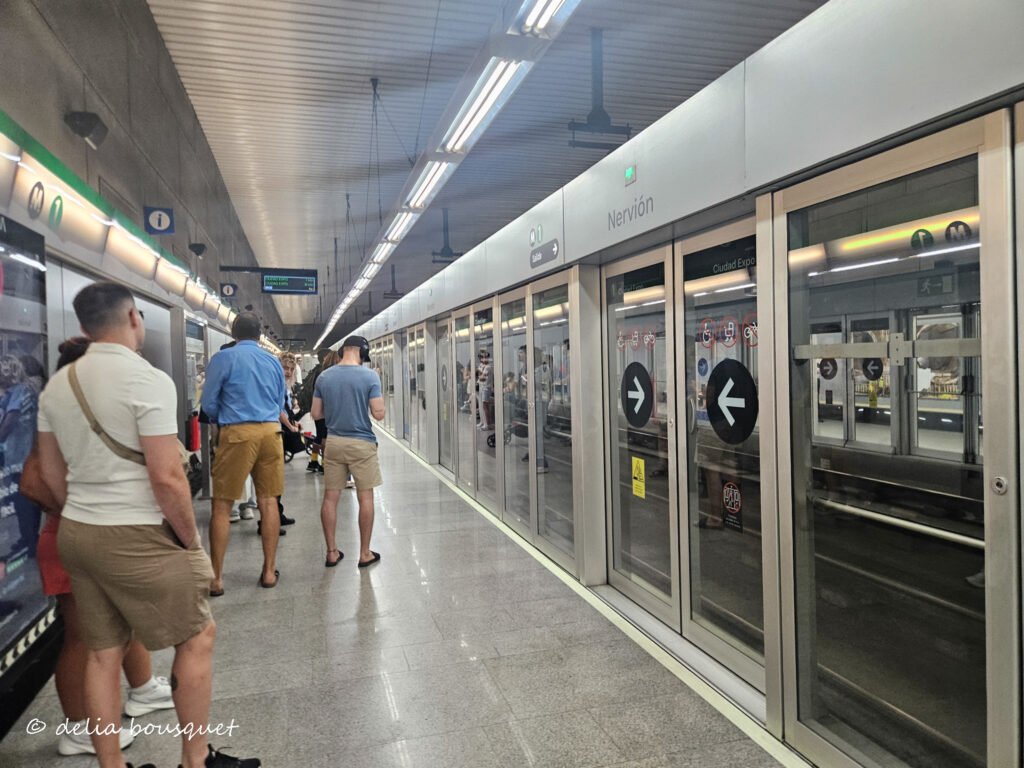
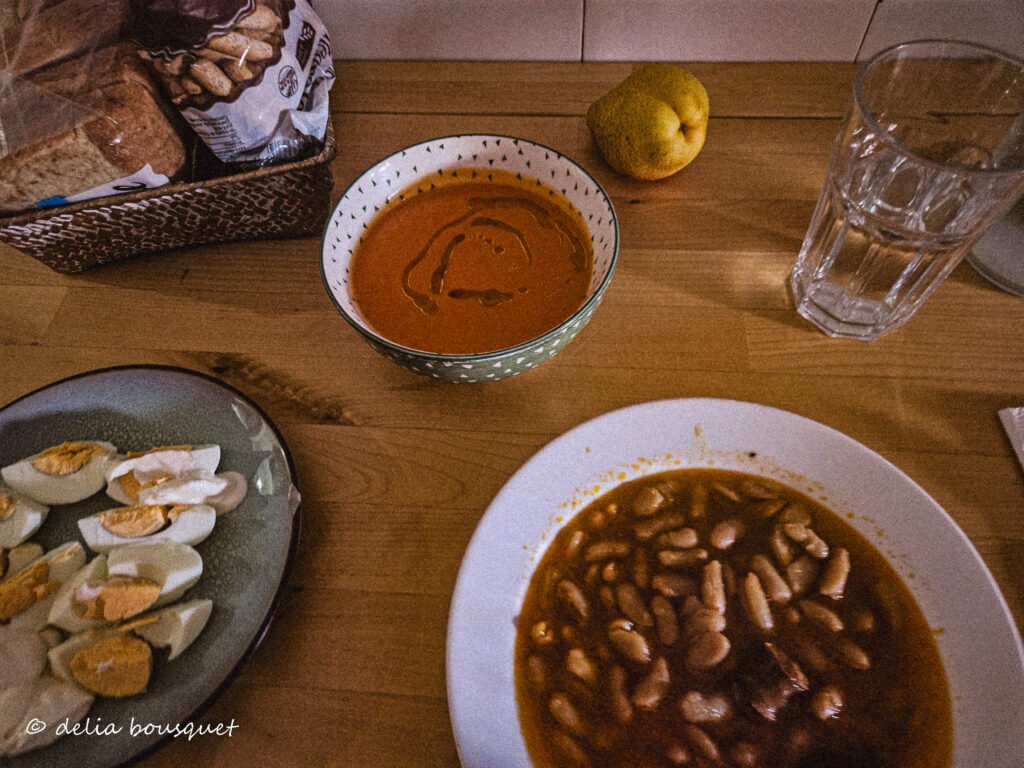
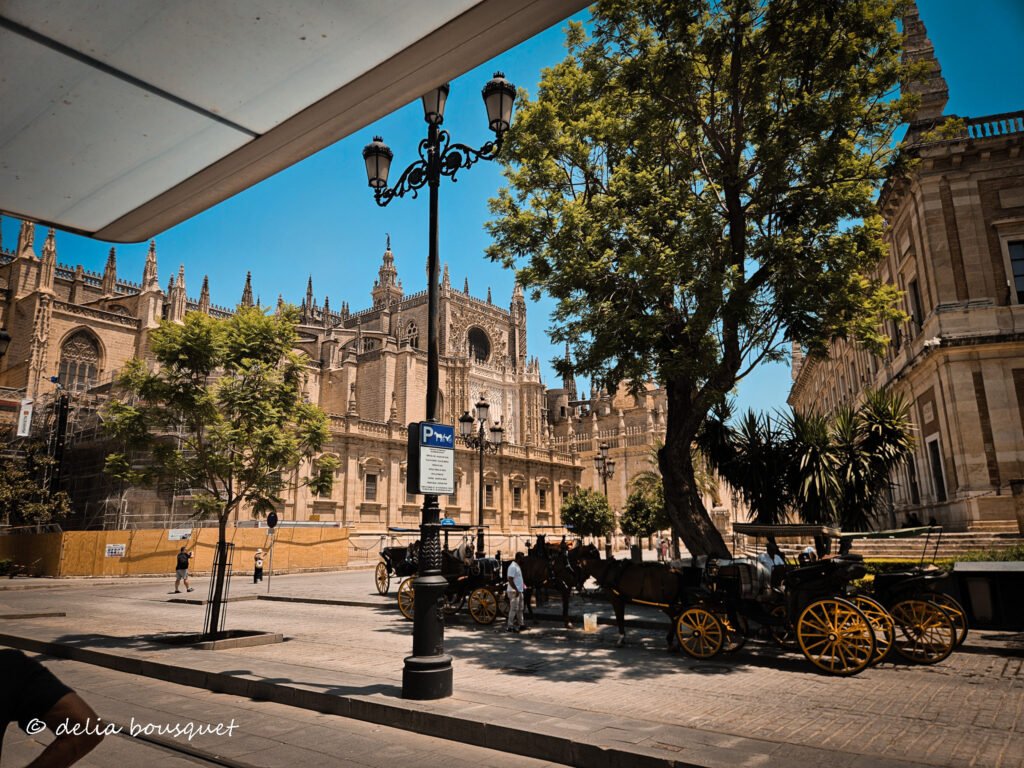


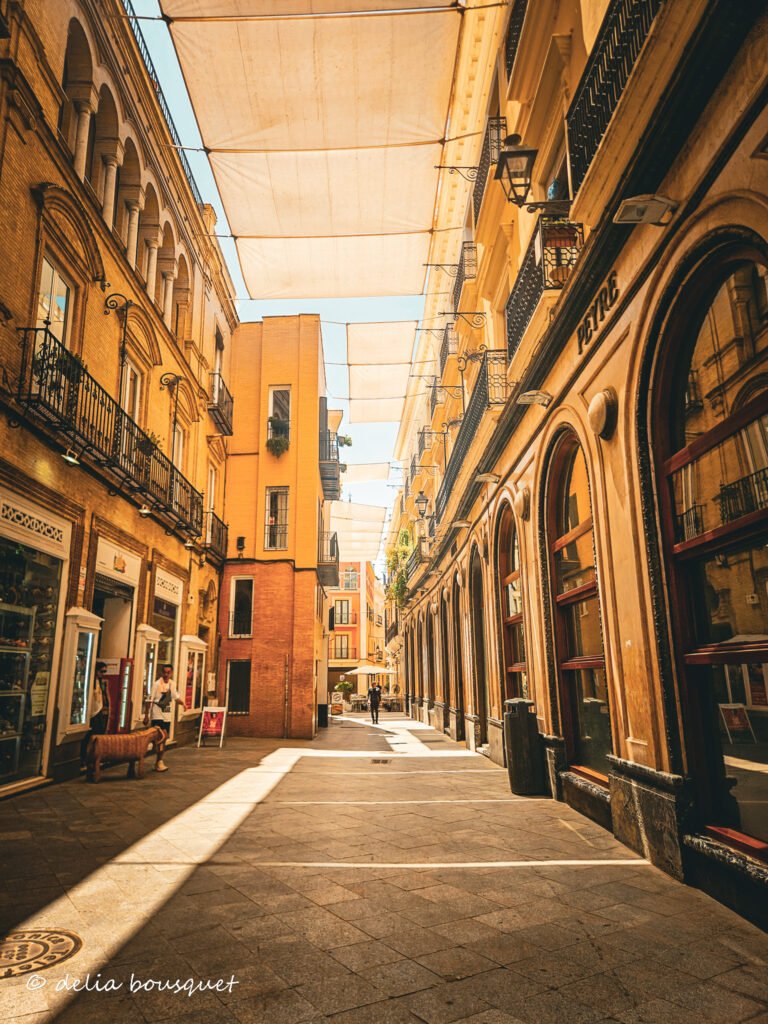
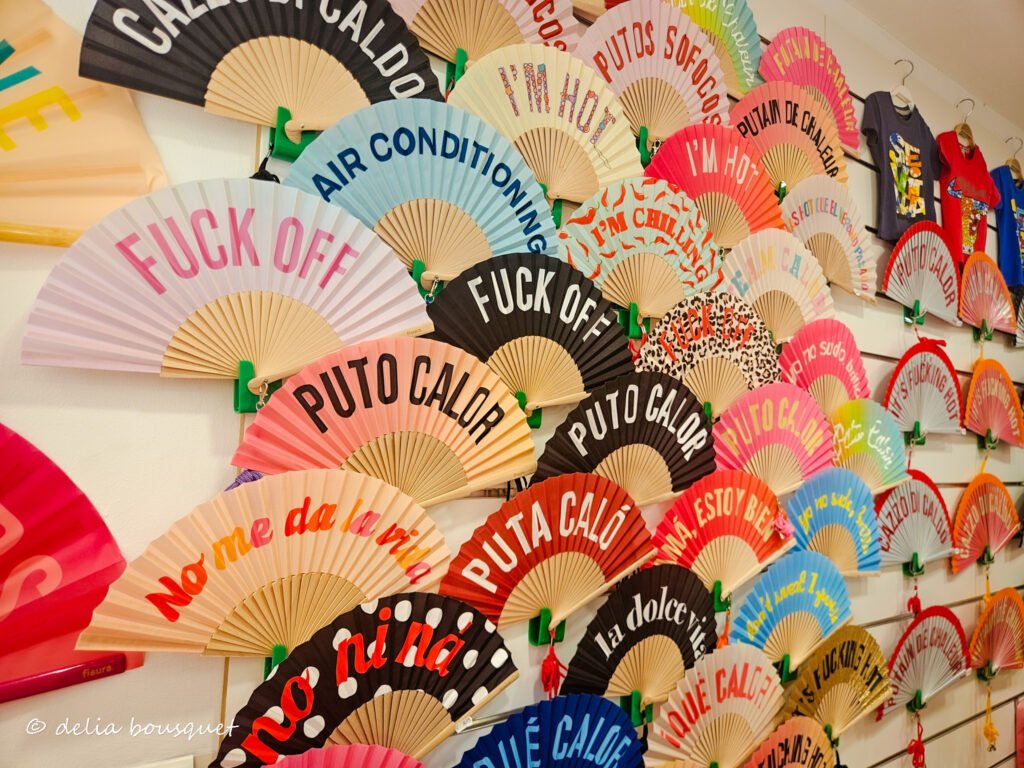
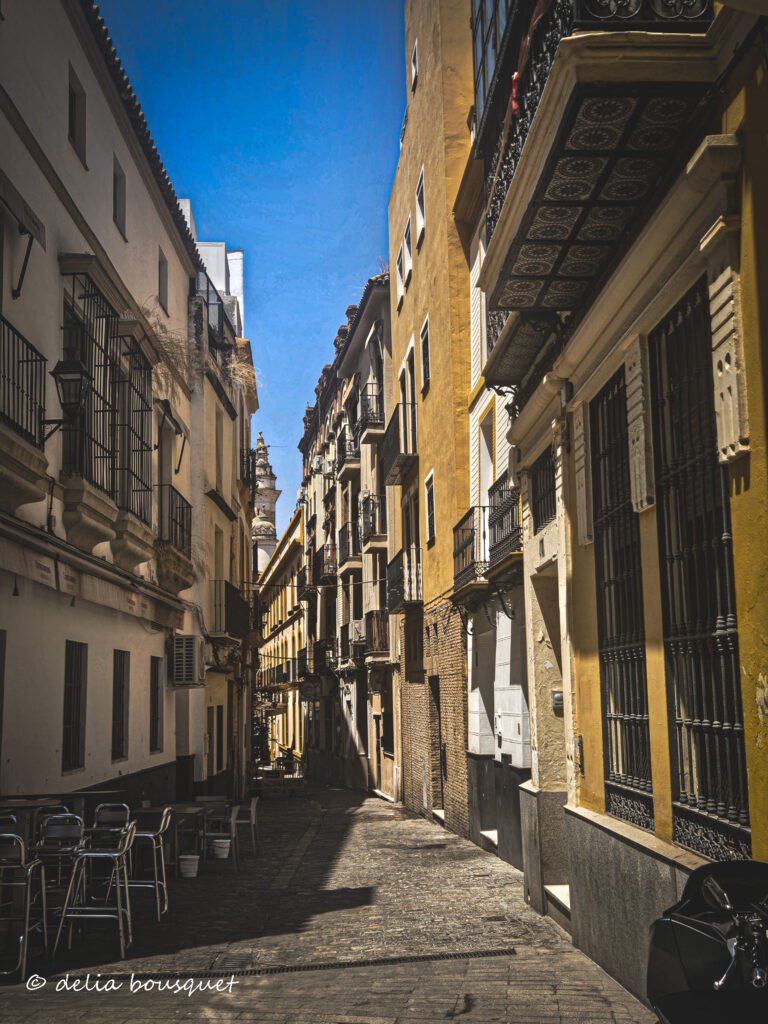
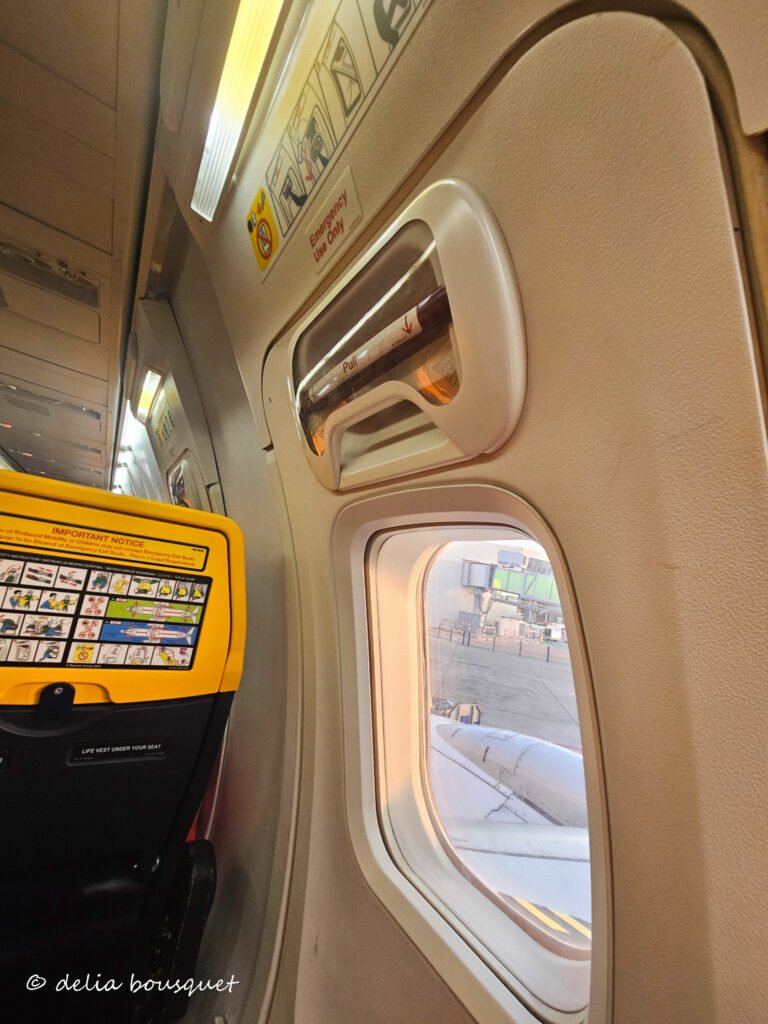
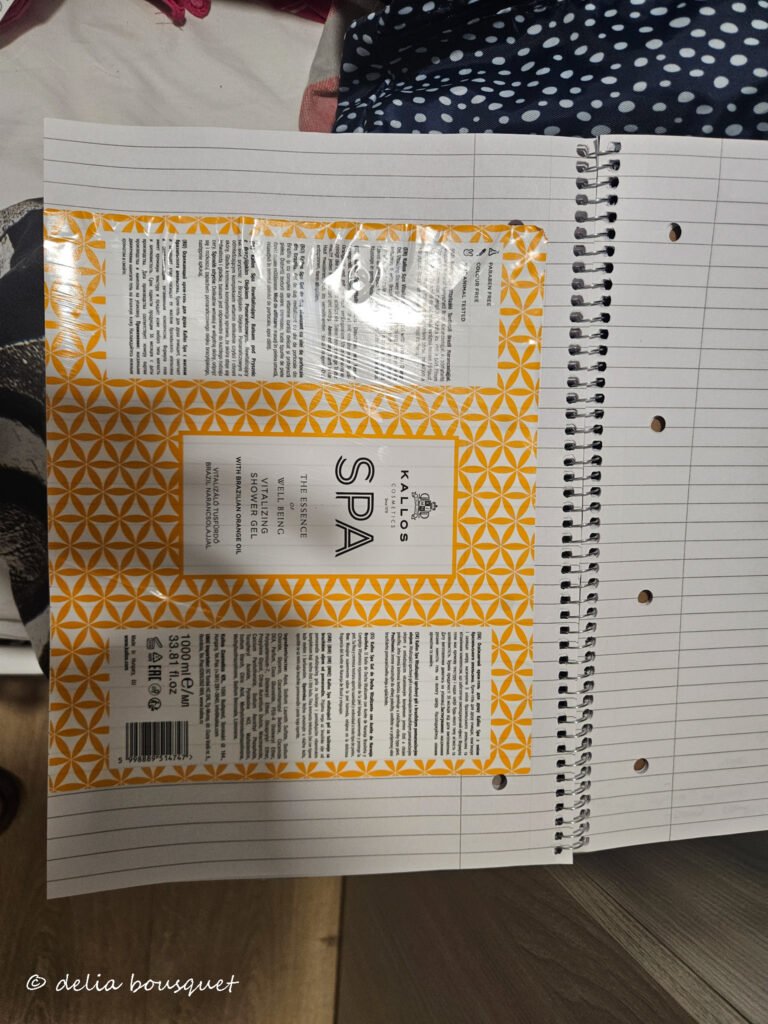
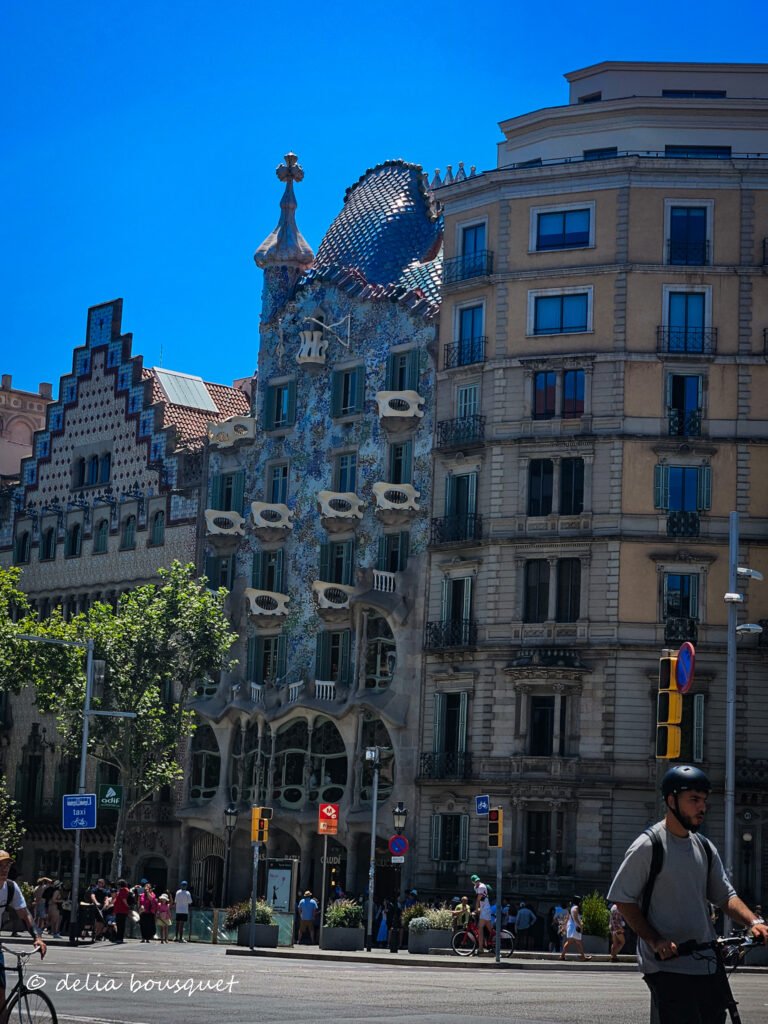
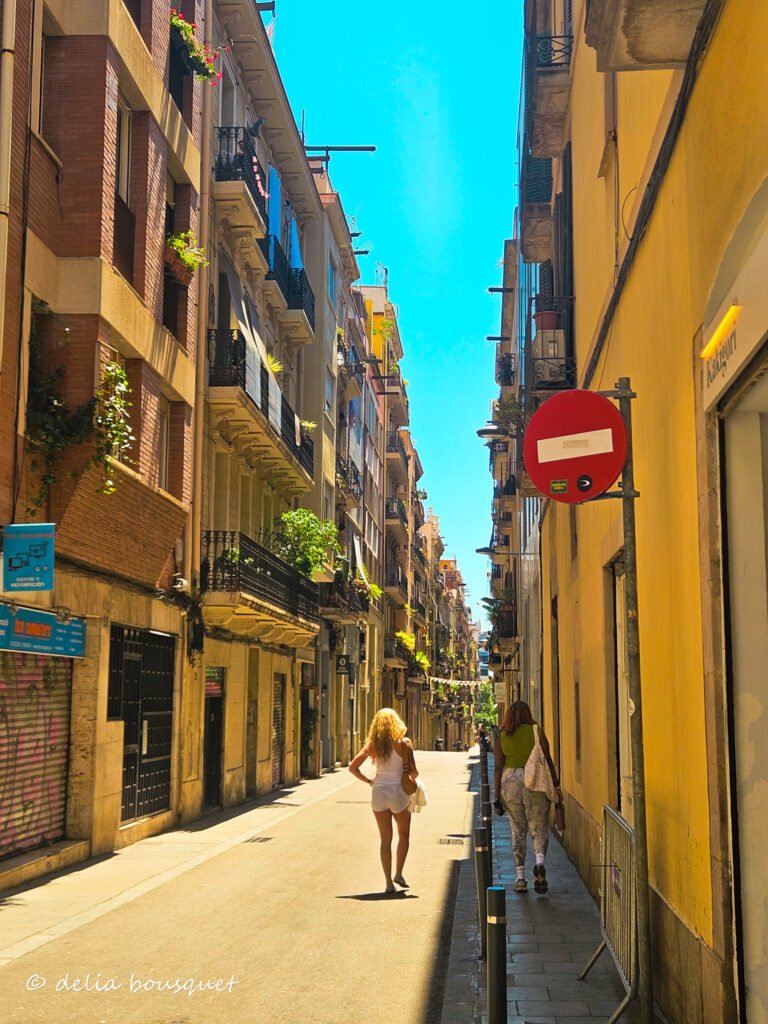

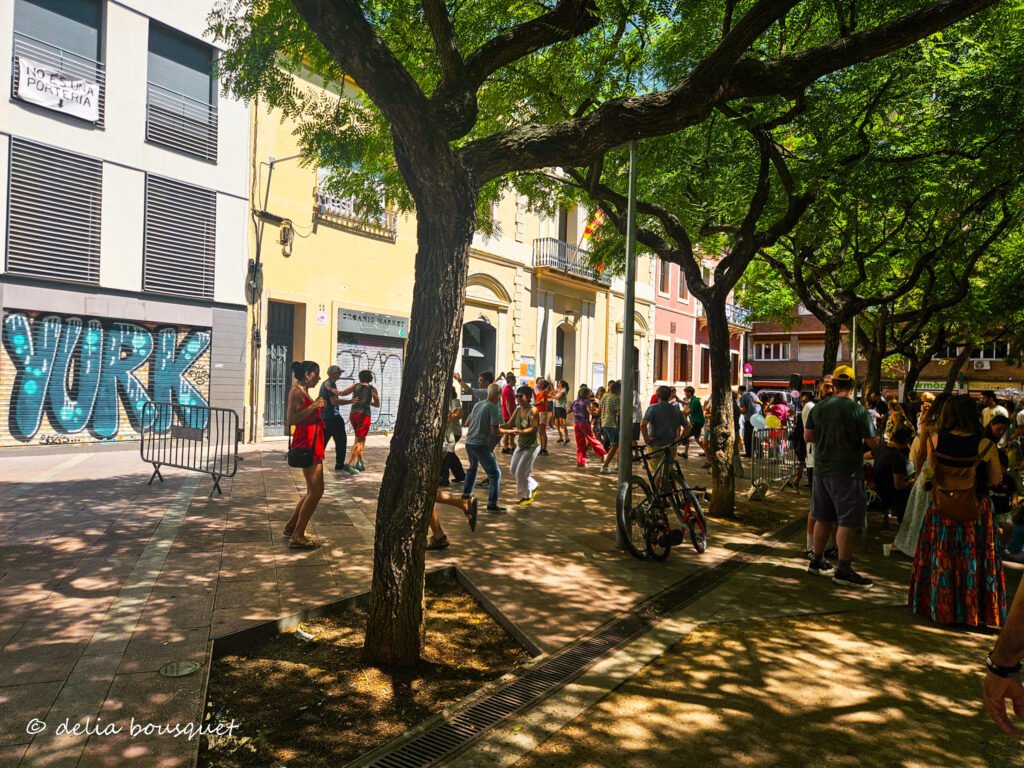
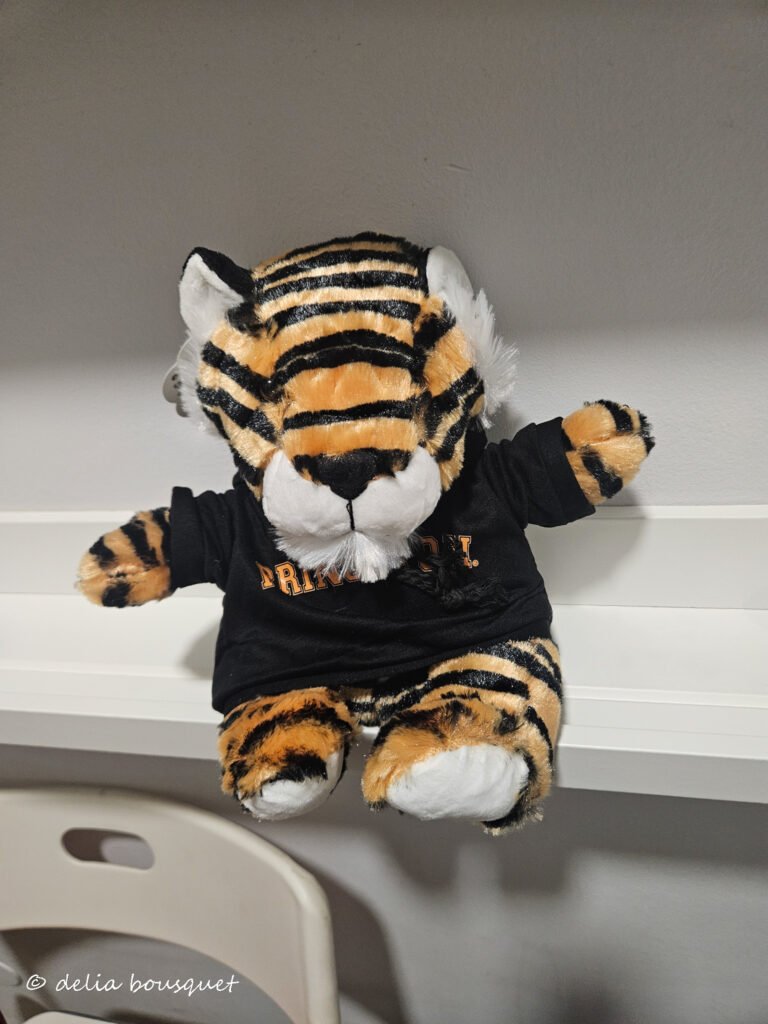
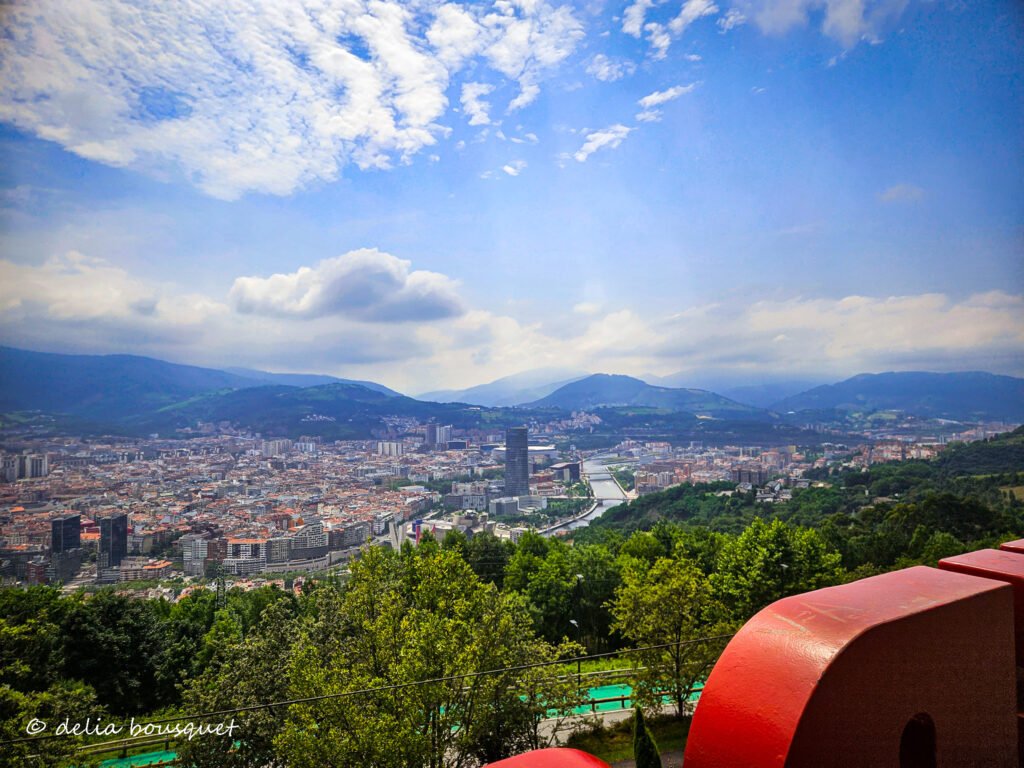
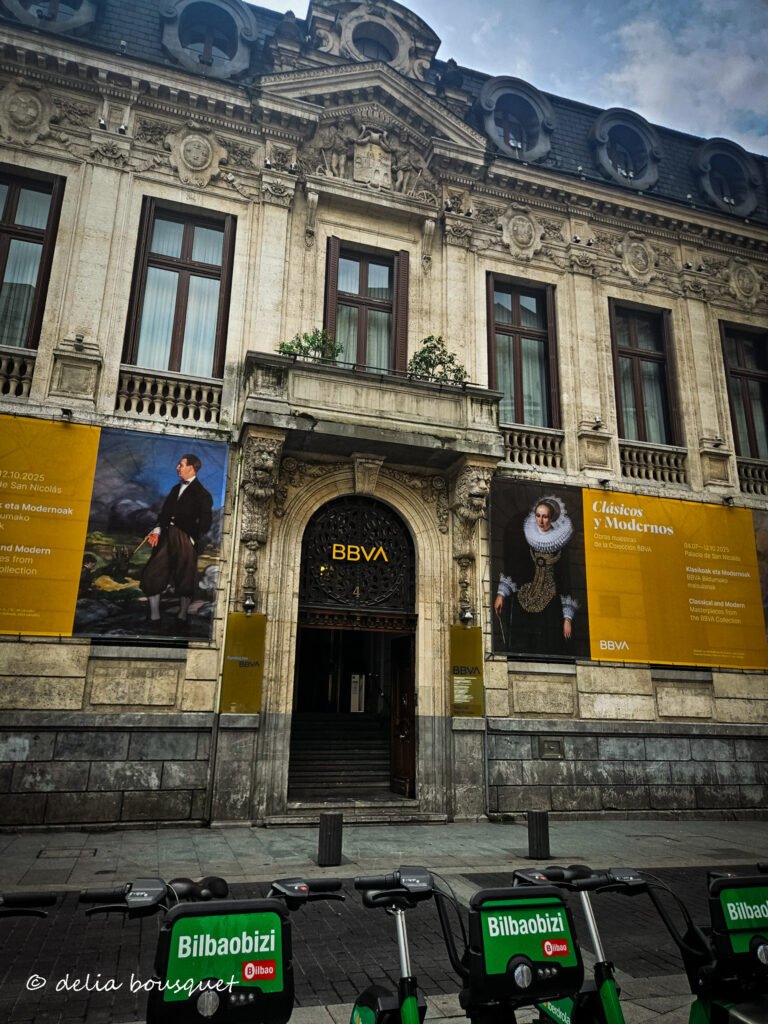
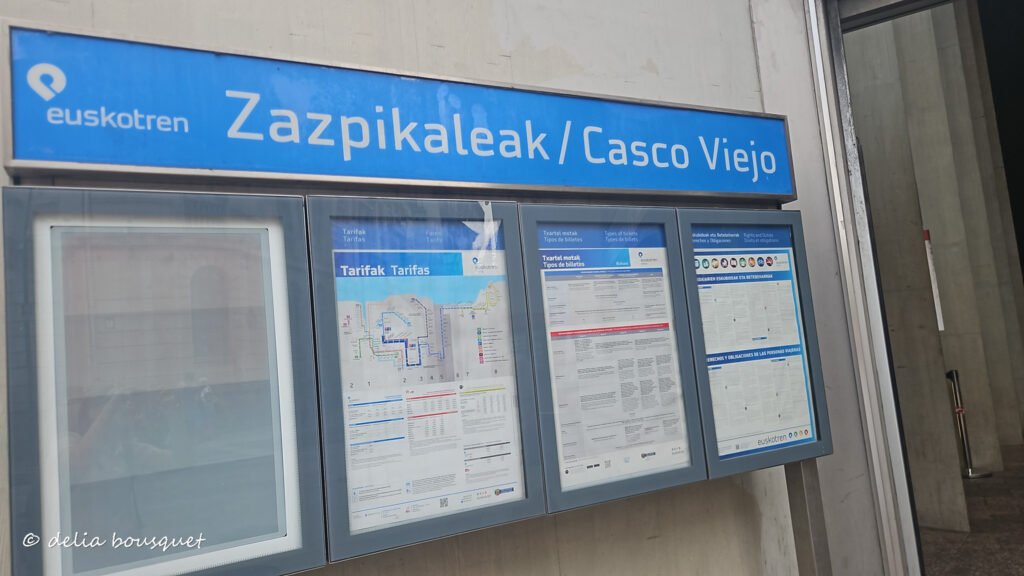
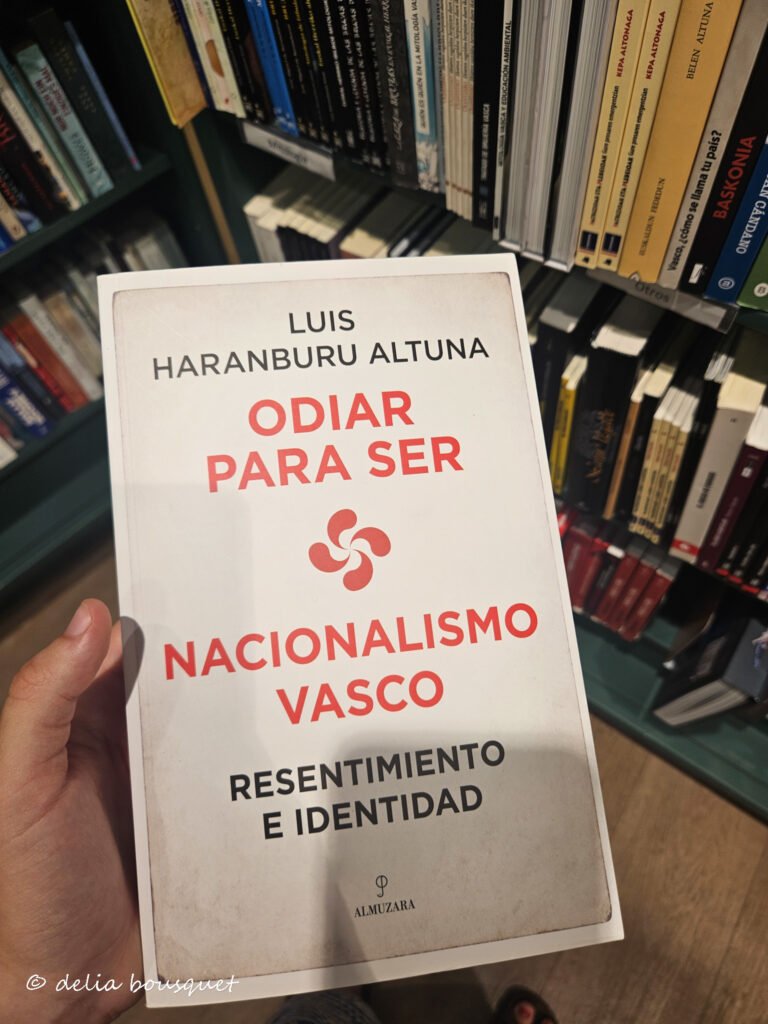

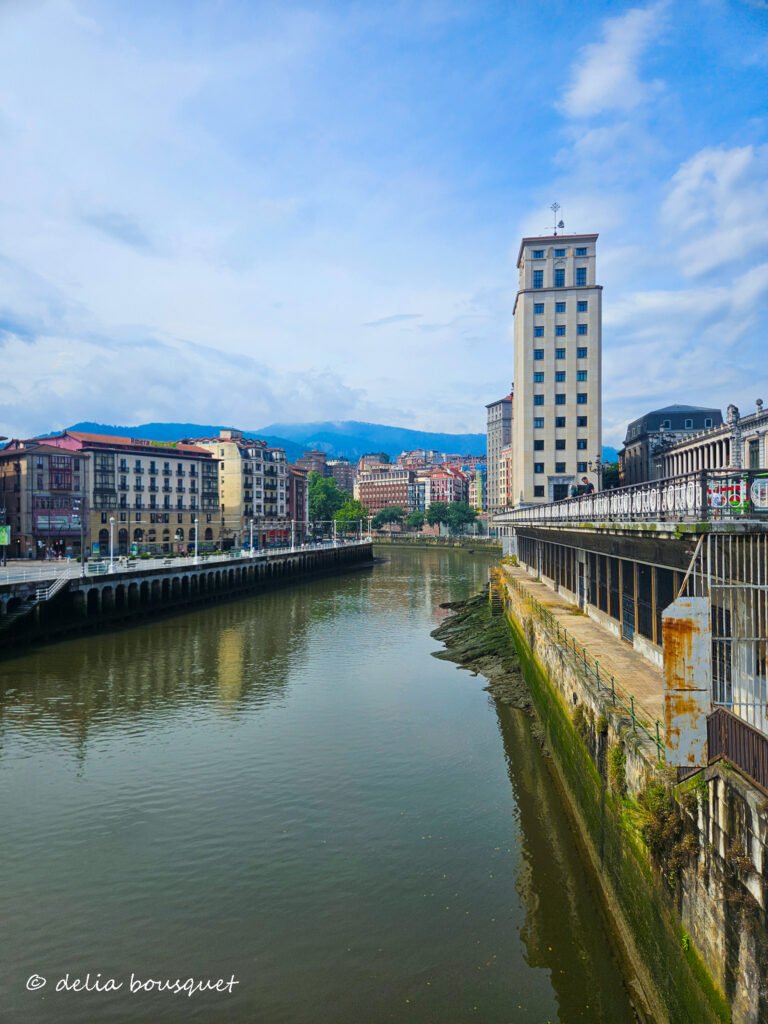
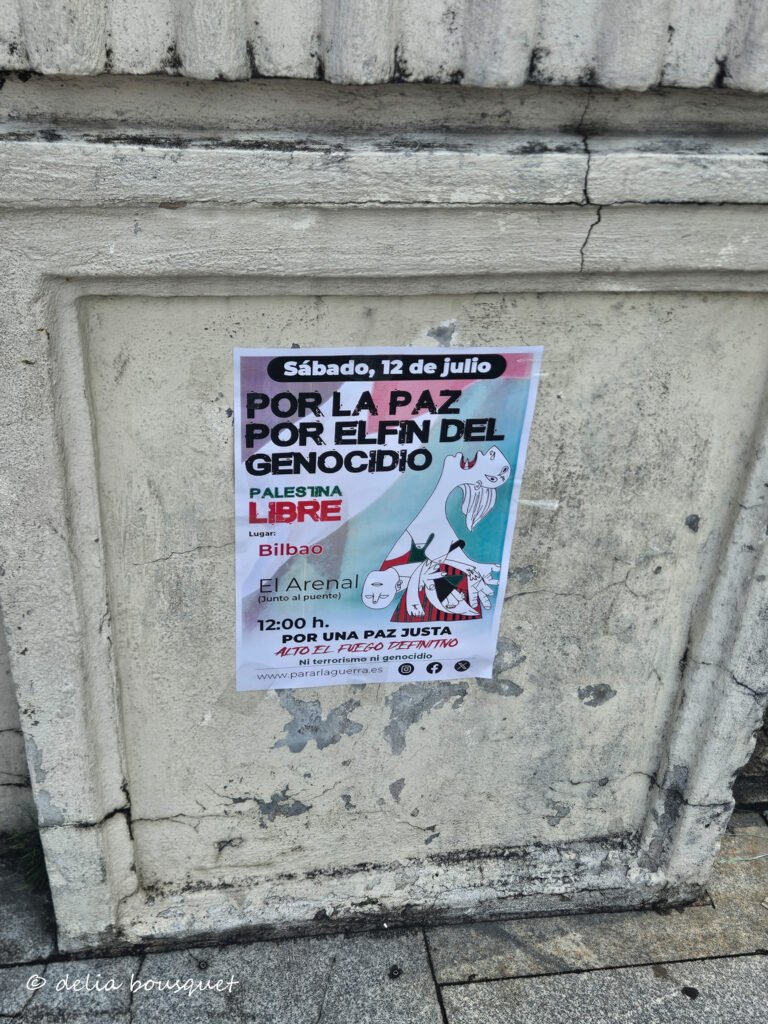
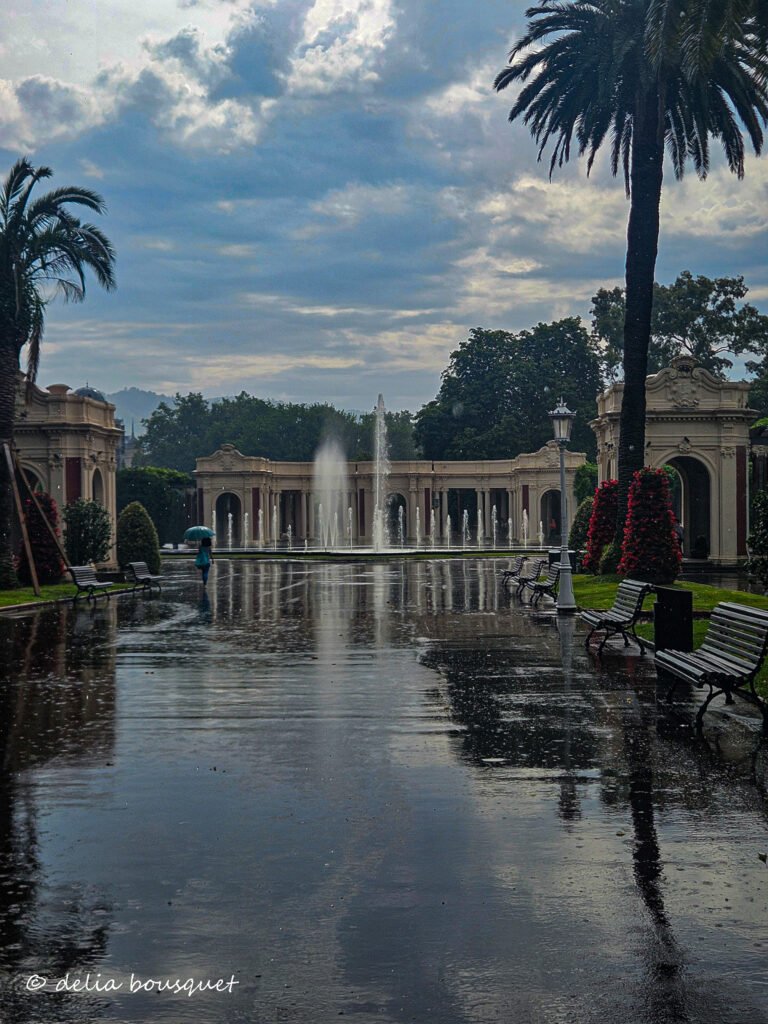
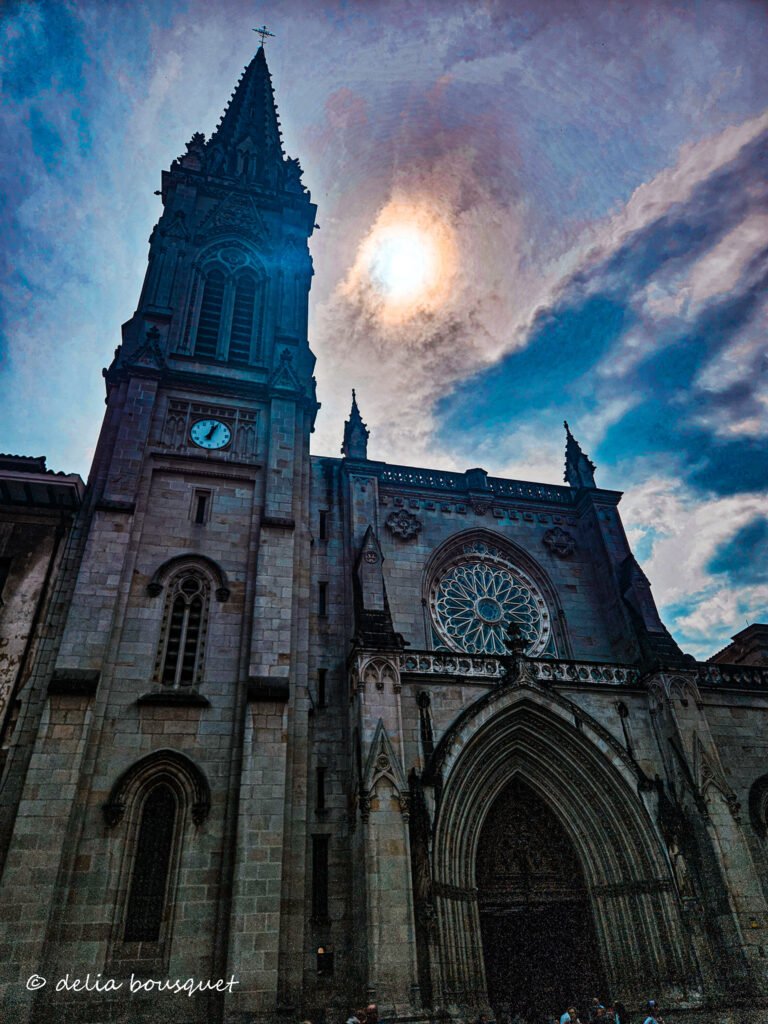
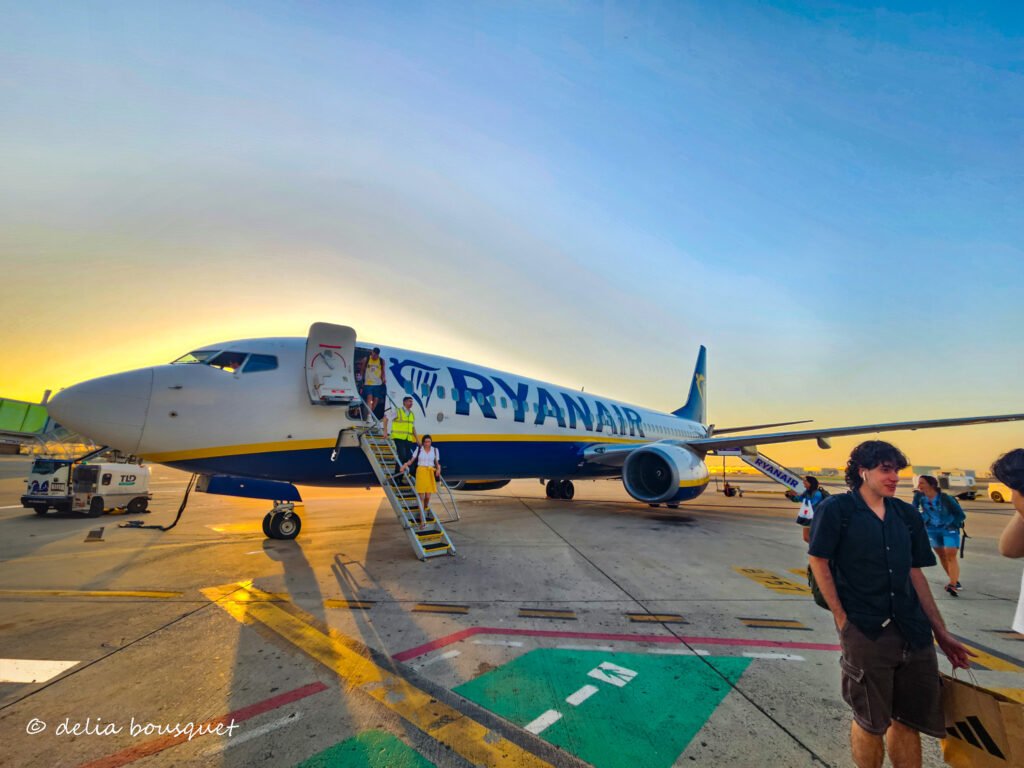
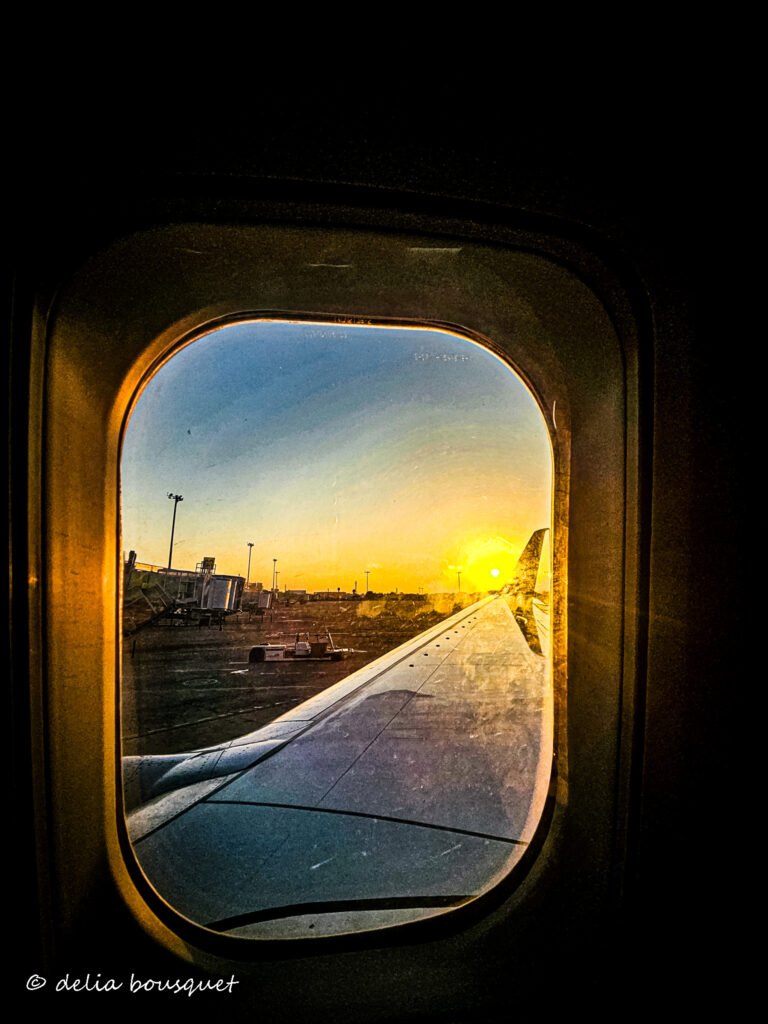

What a great read. And of course I’m telling the story to everyone I know!